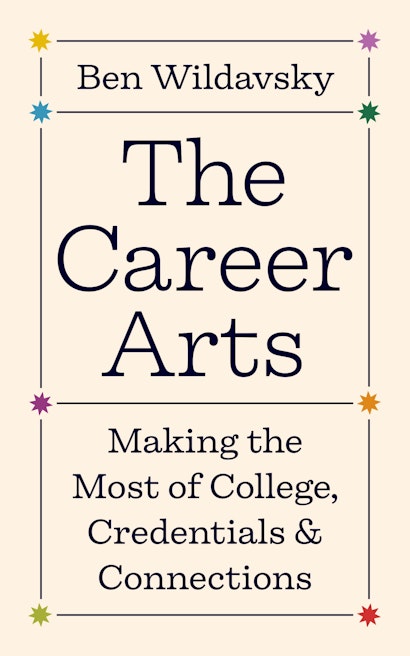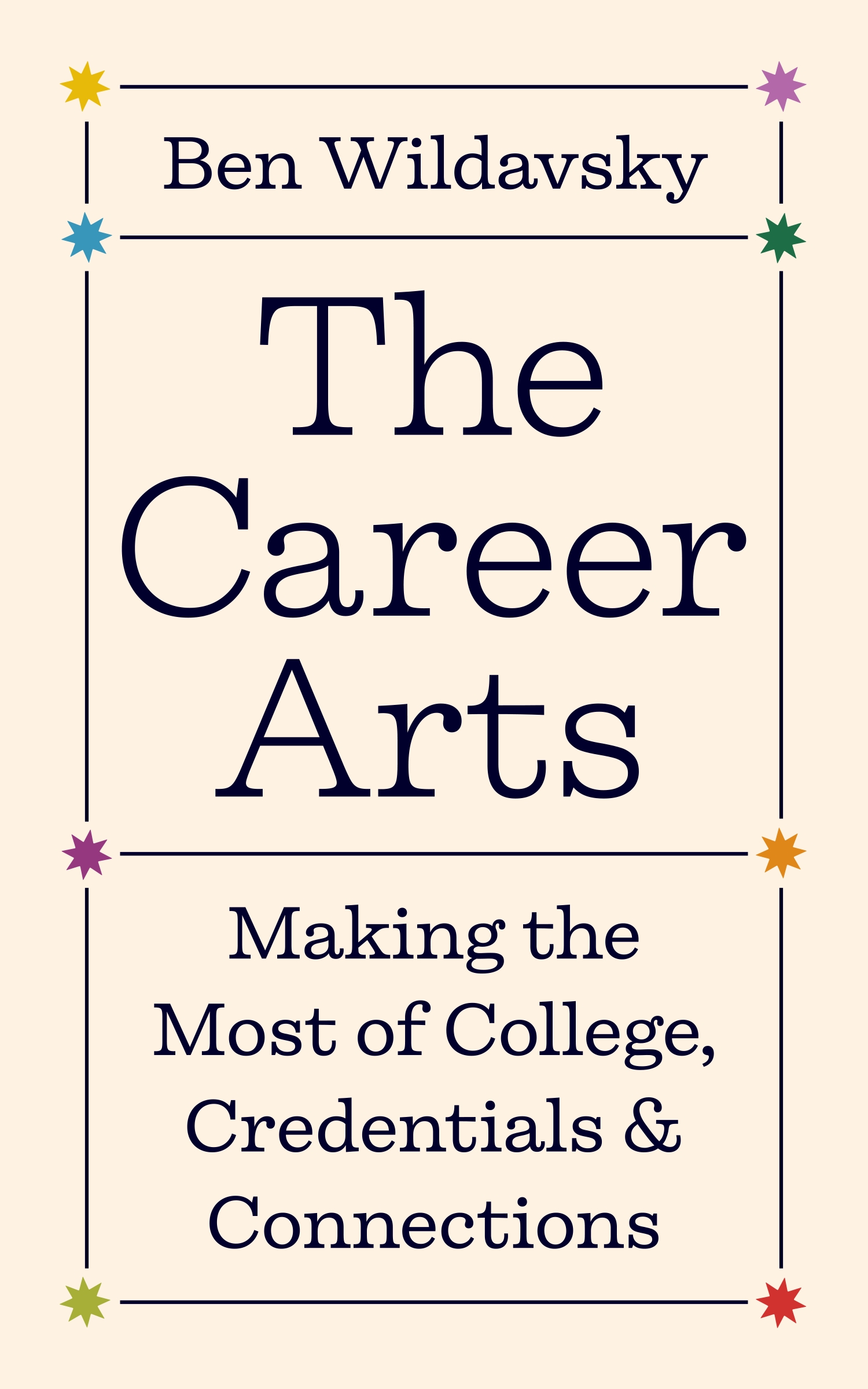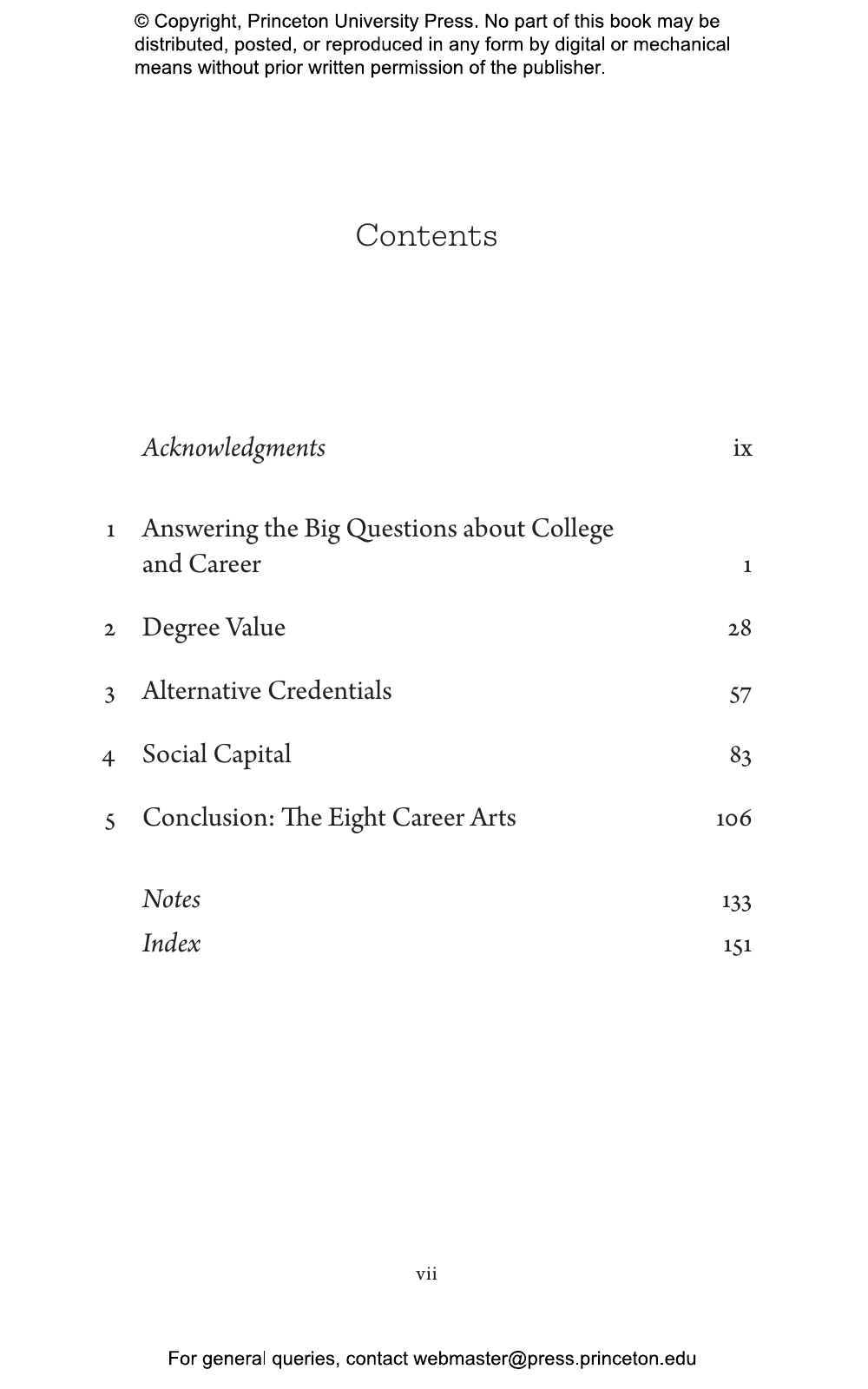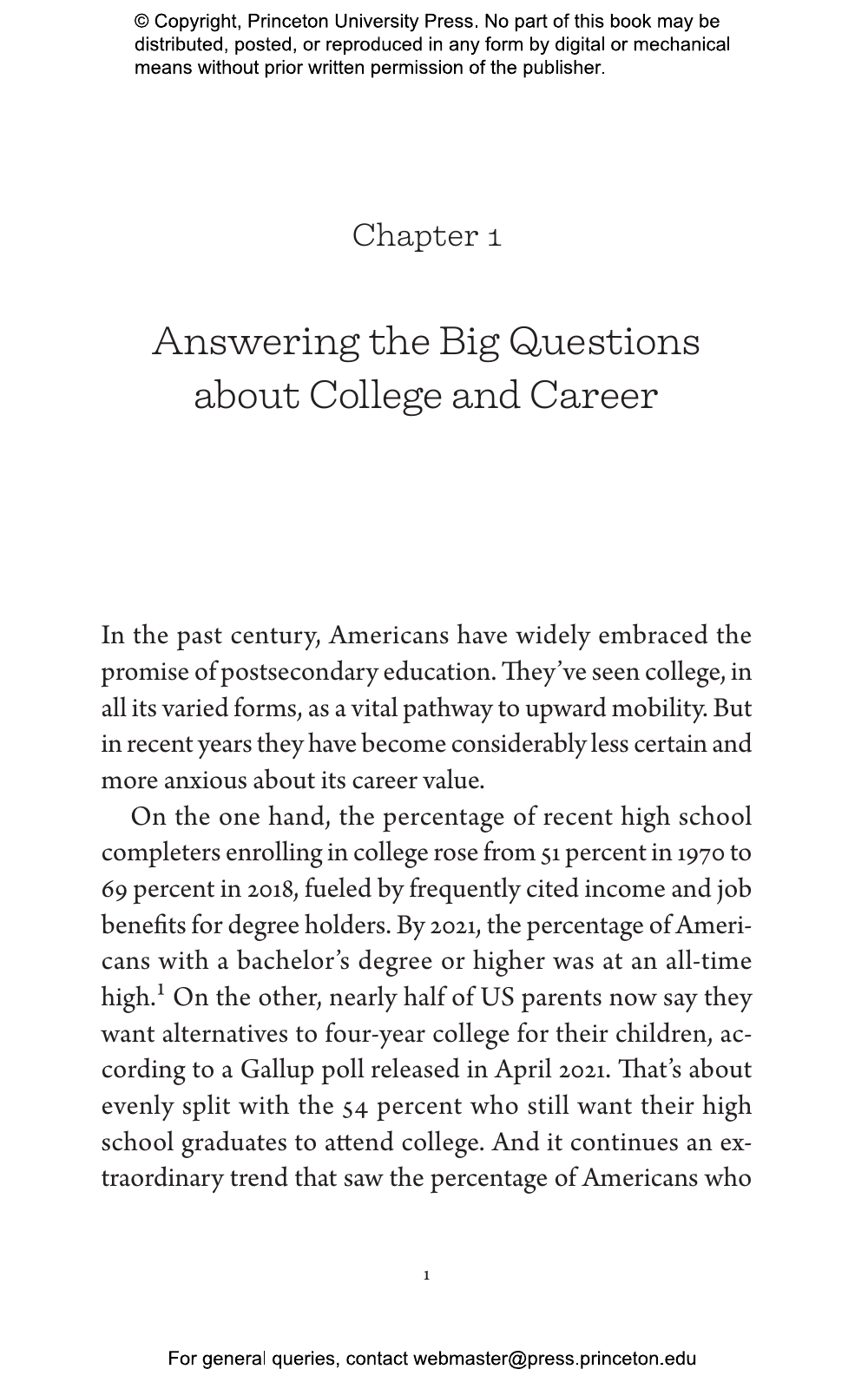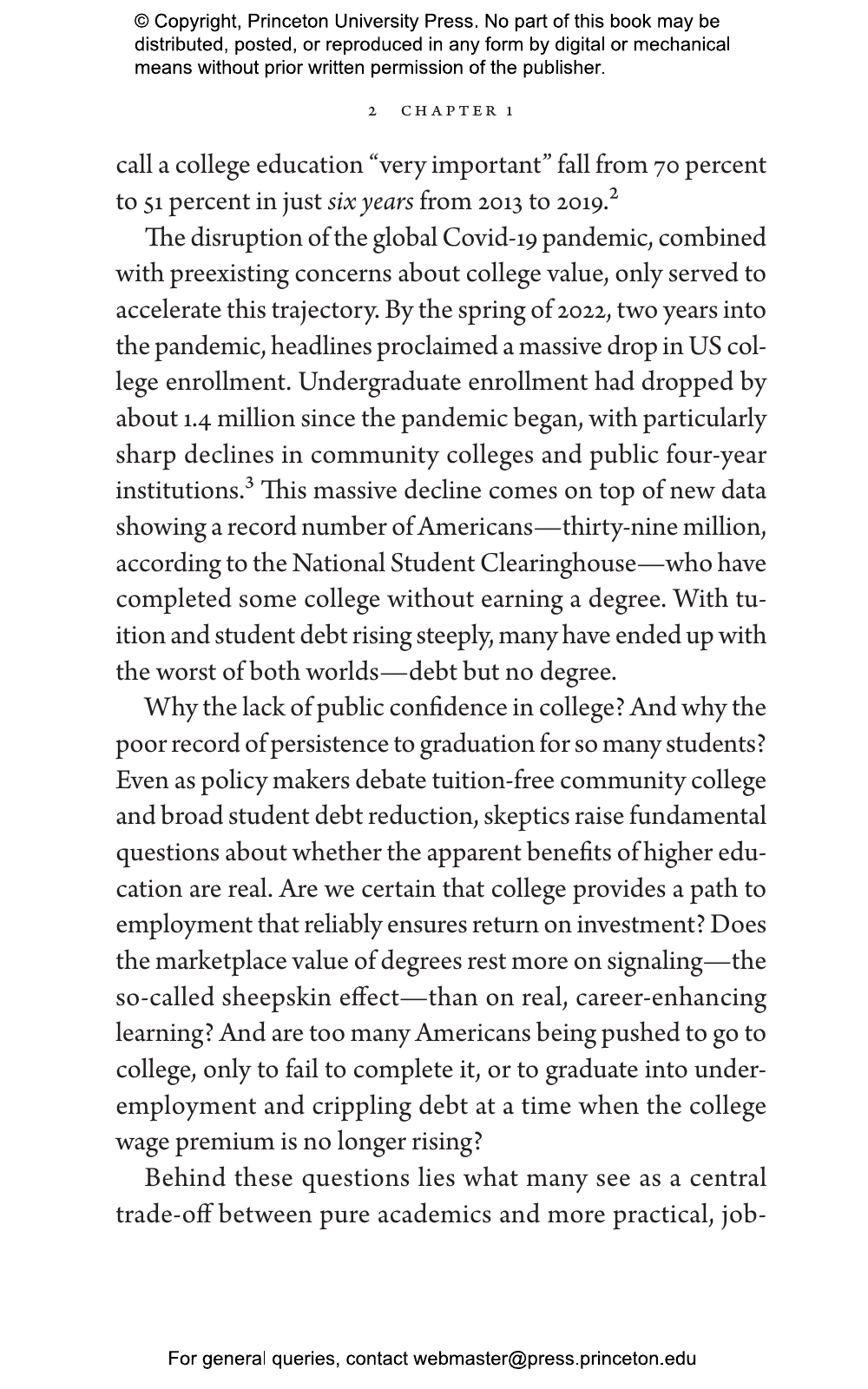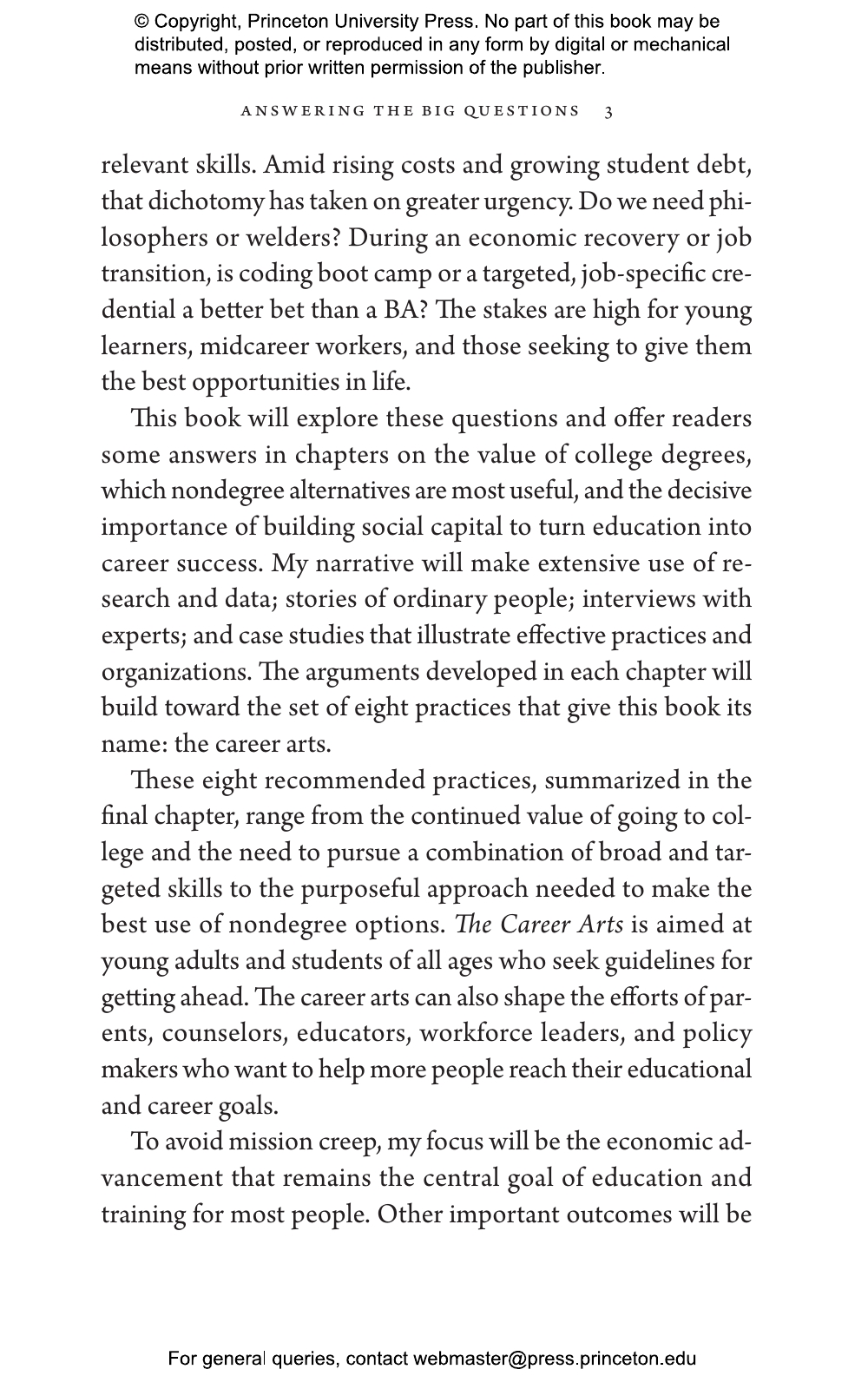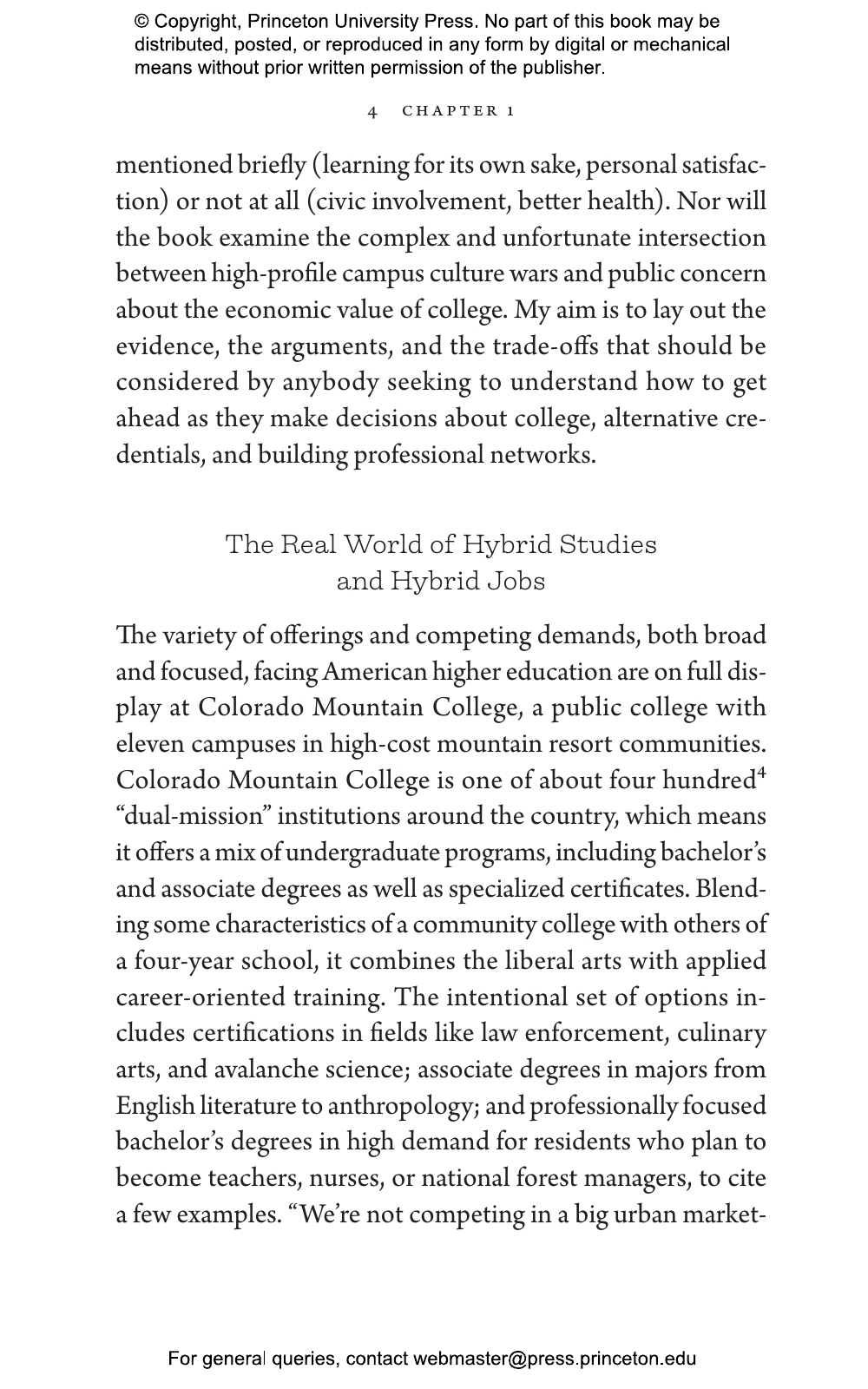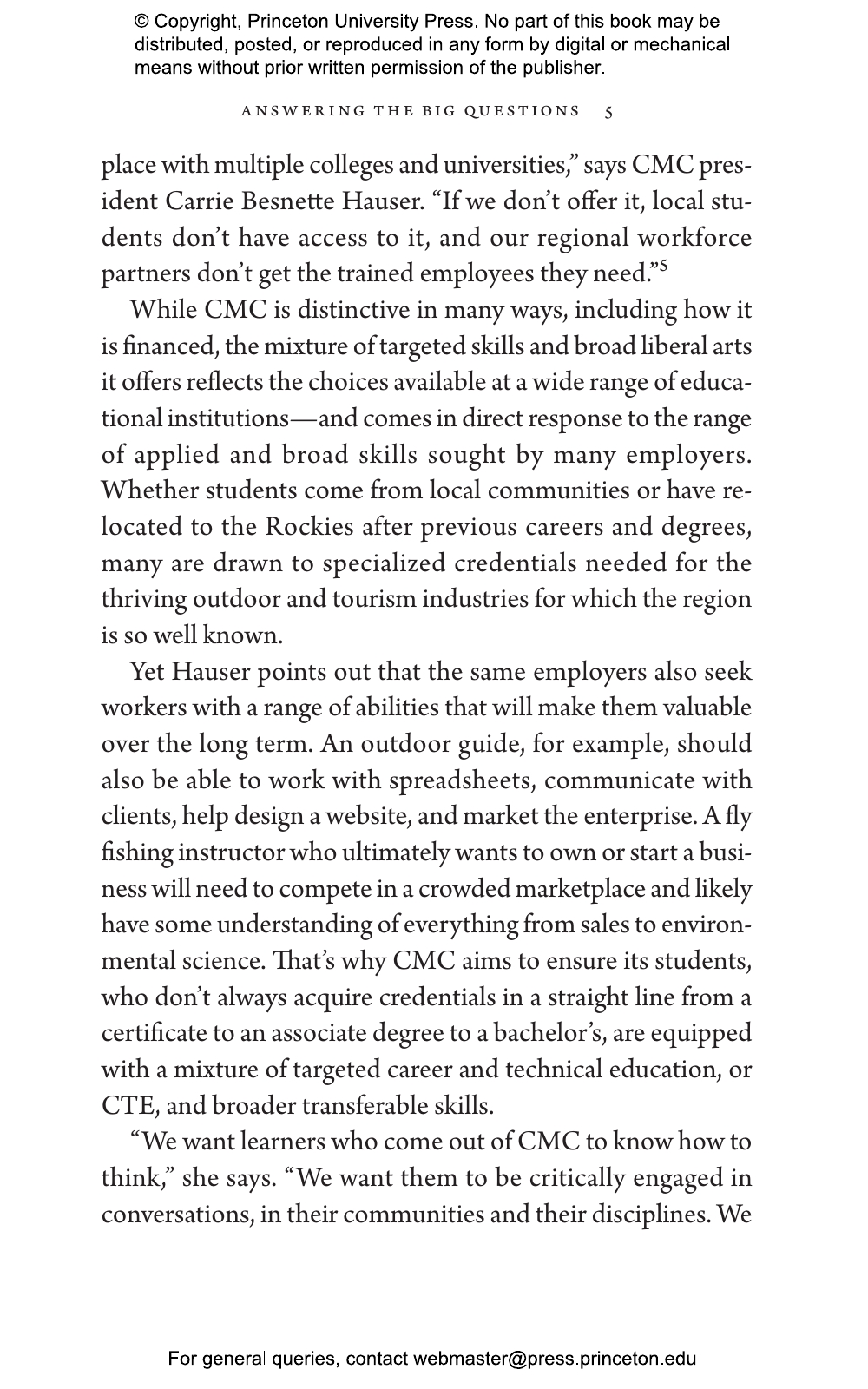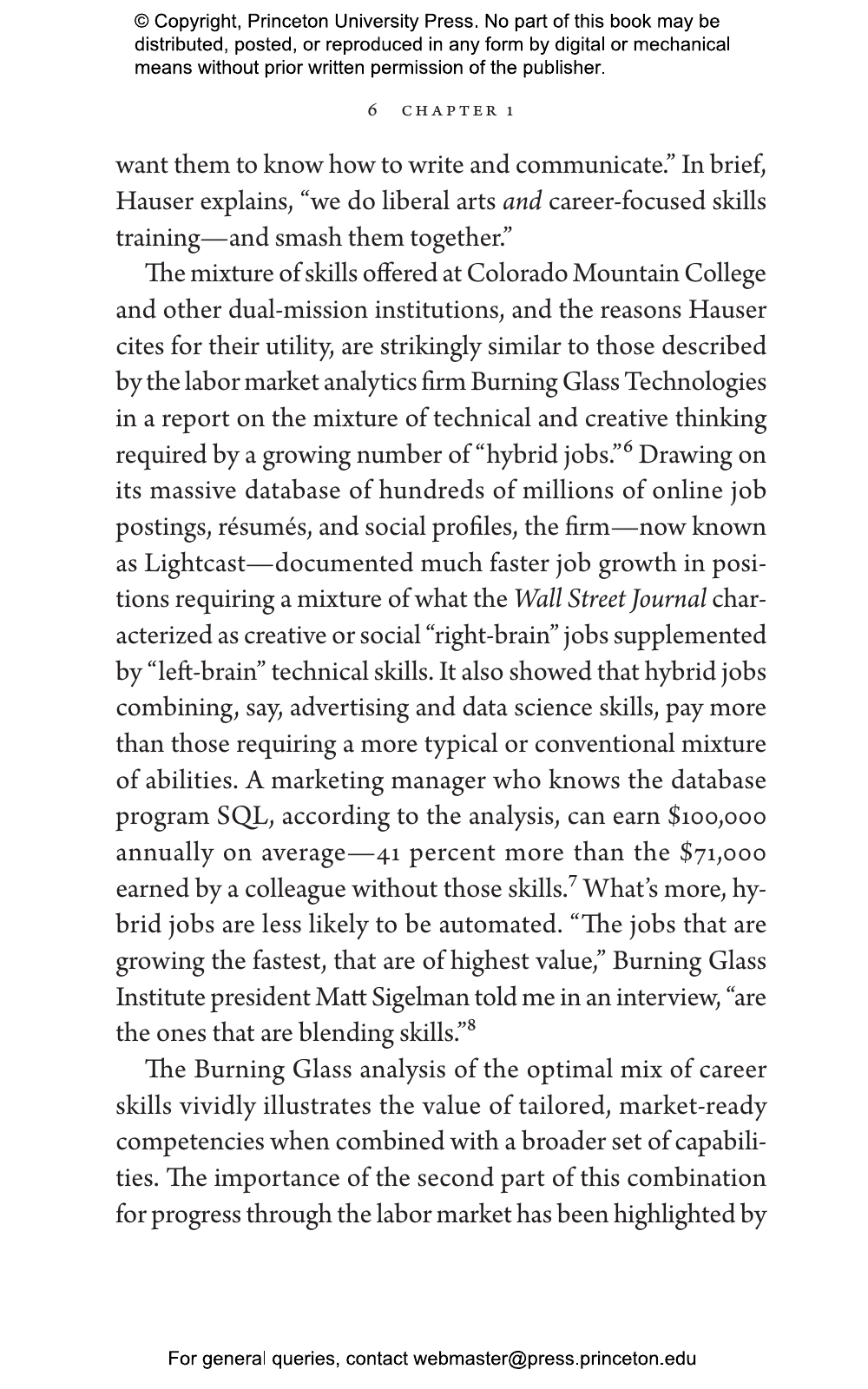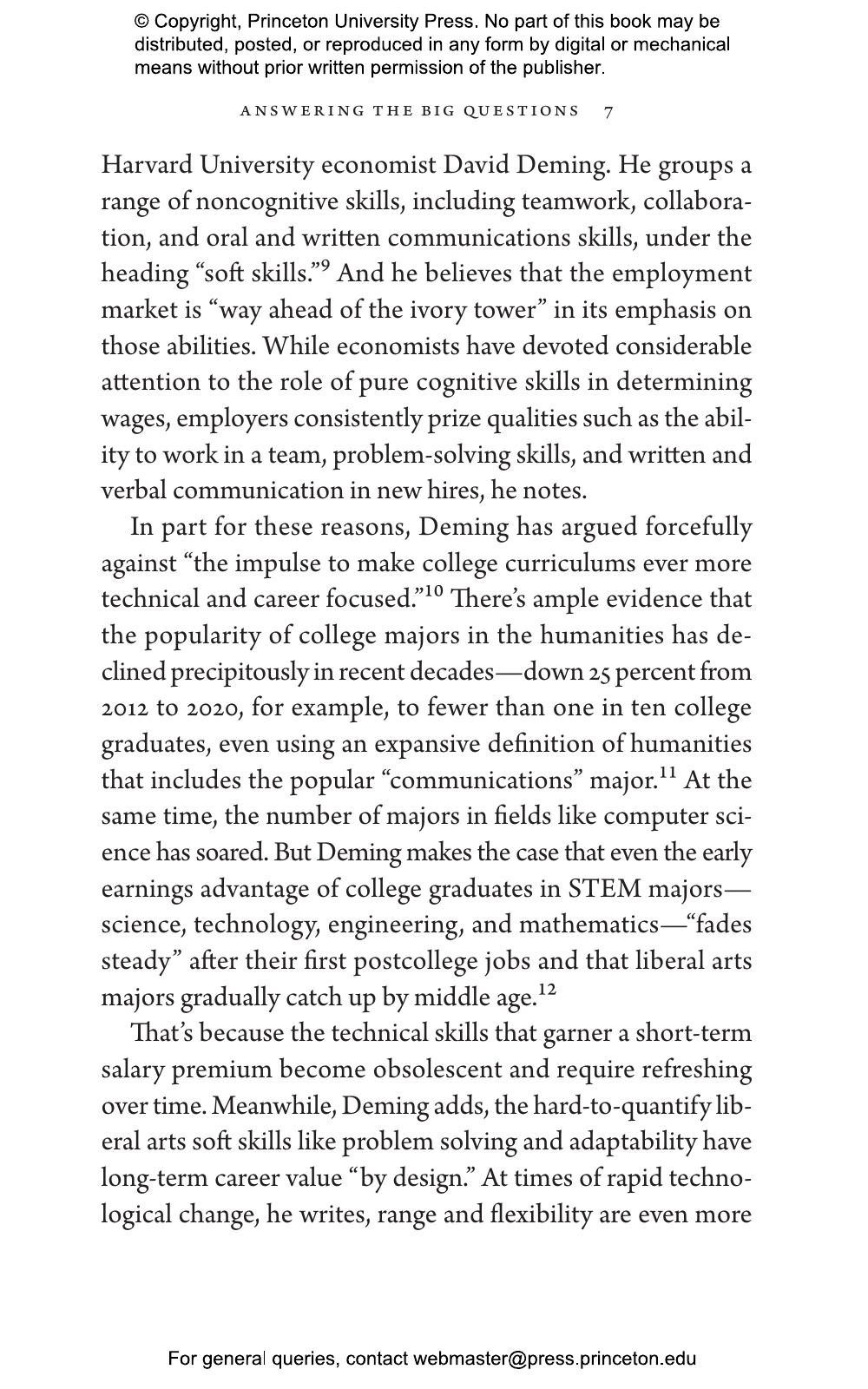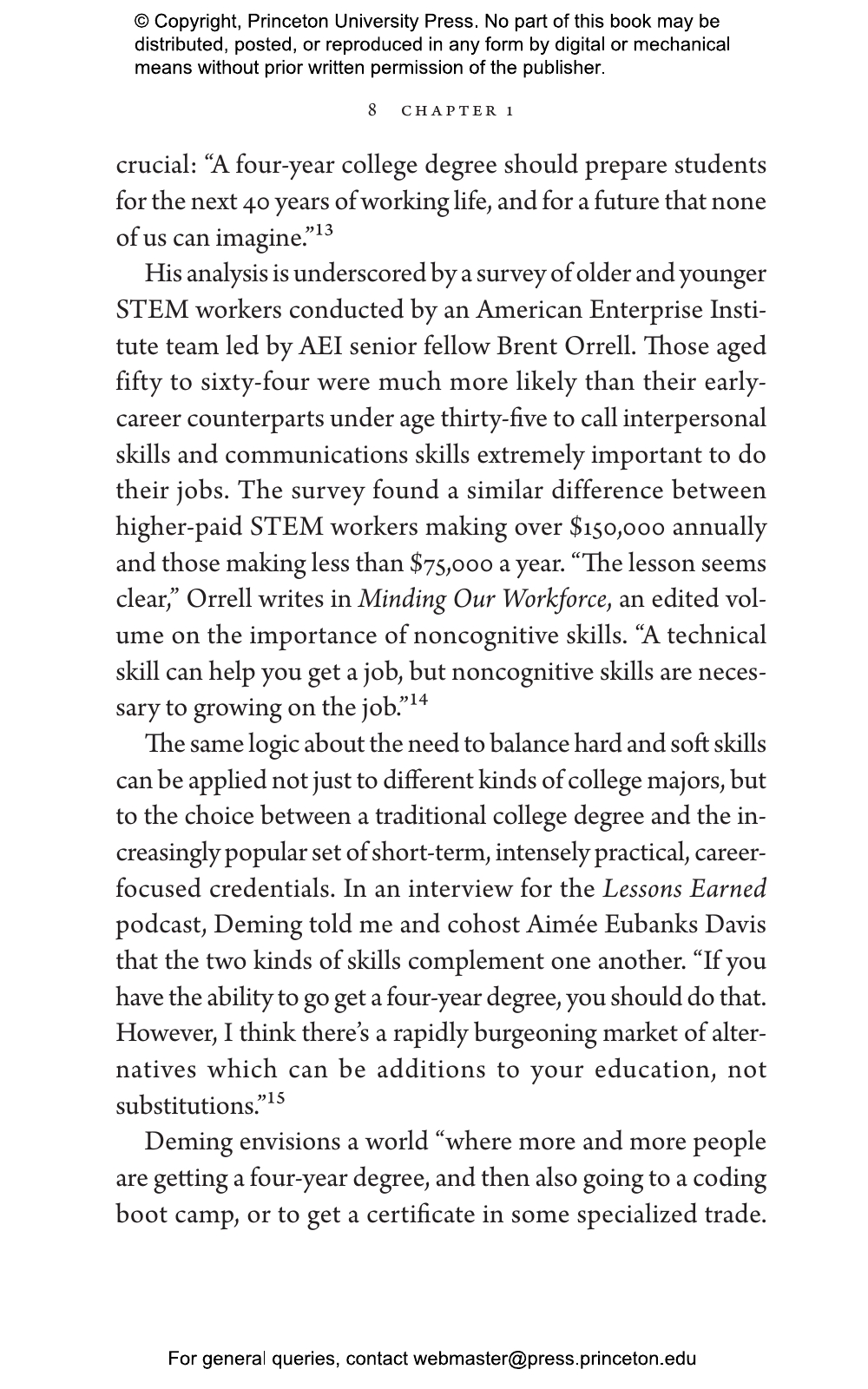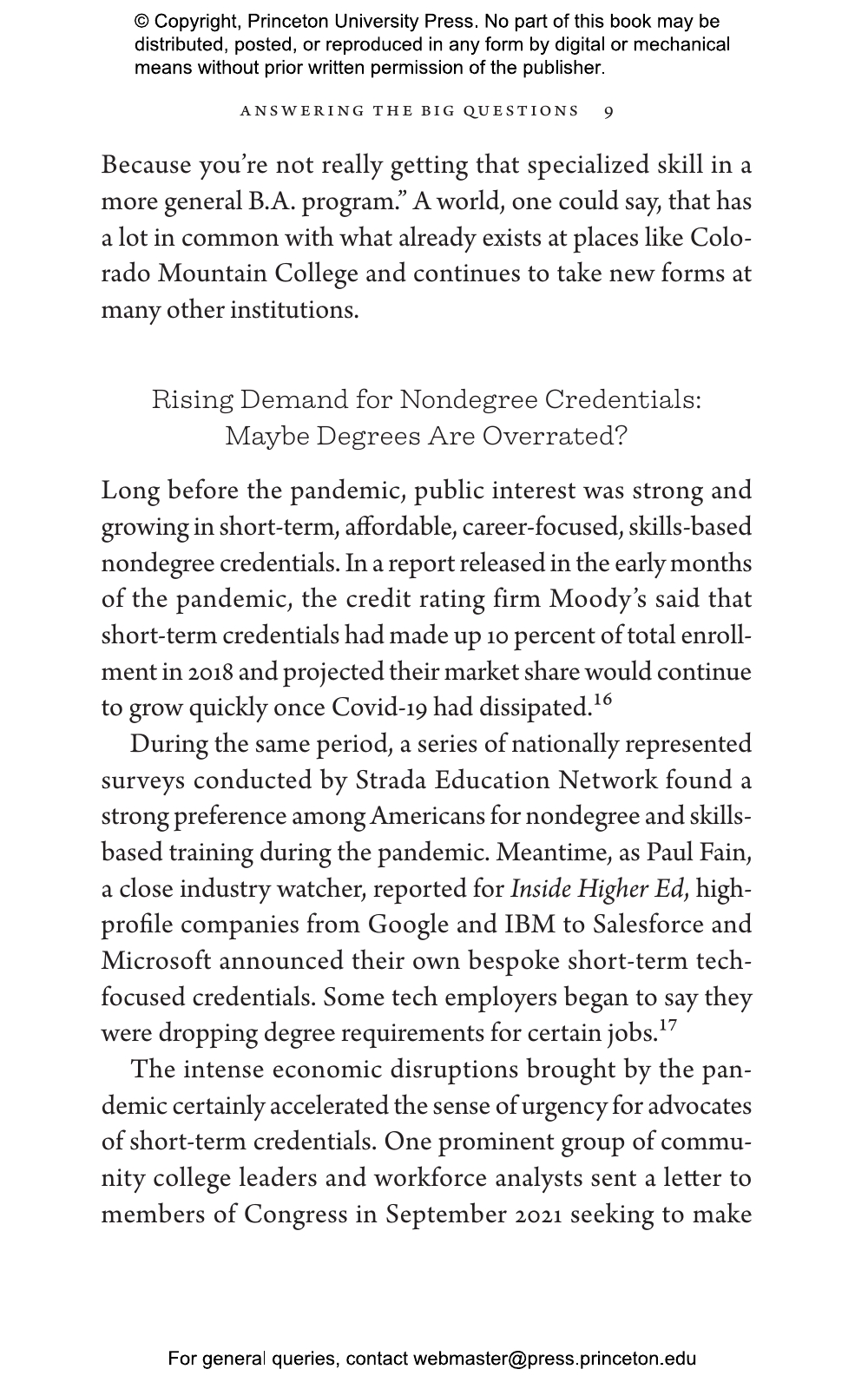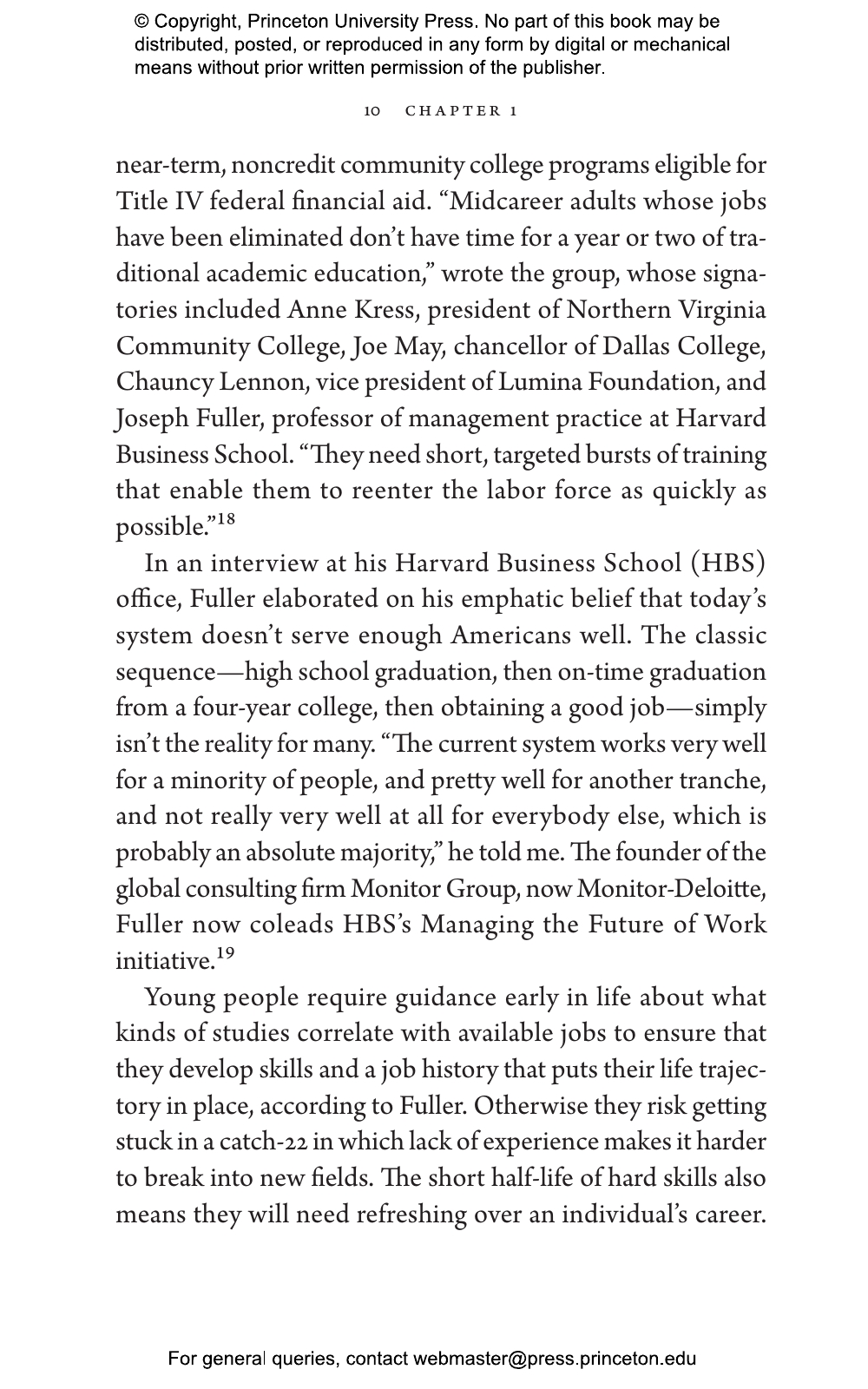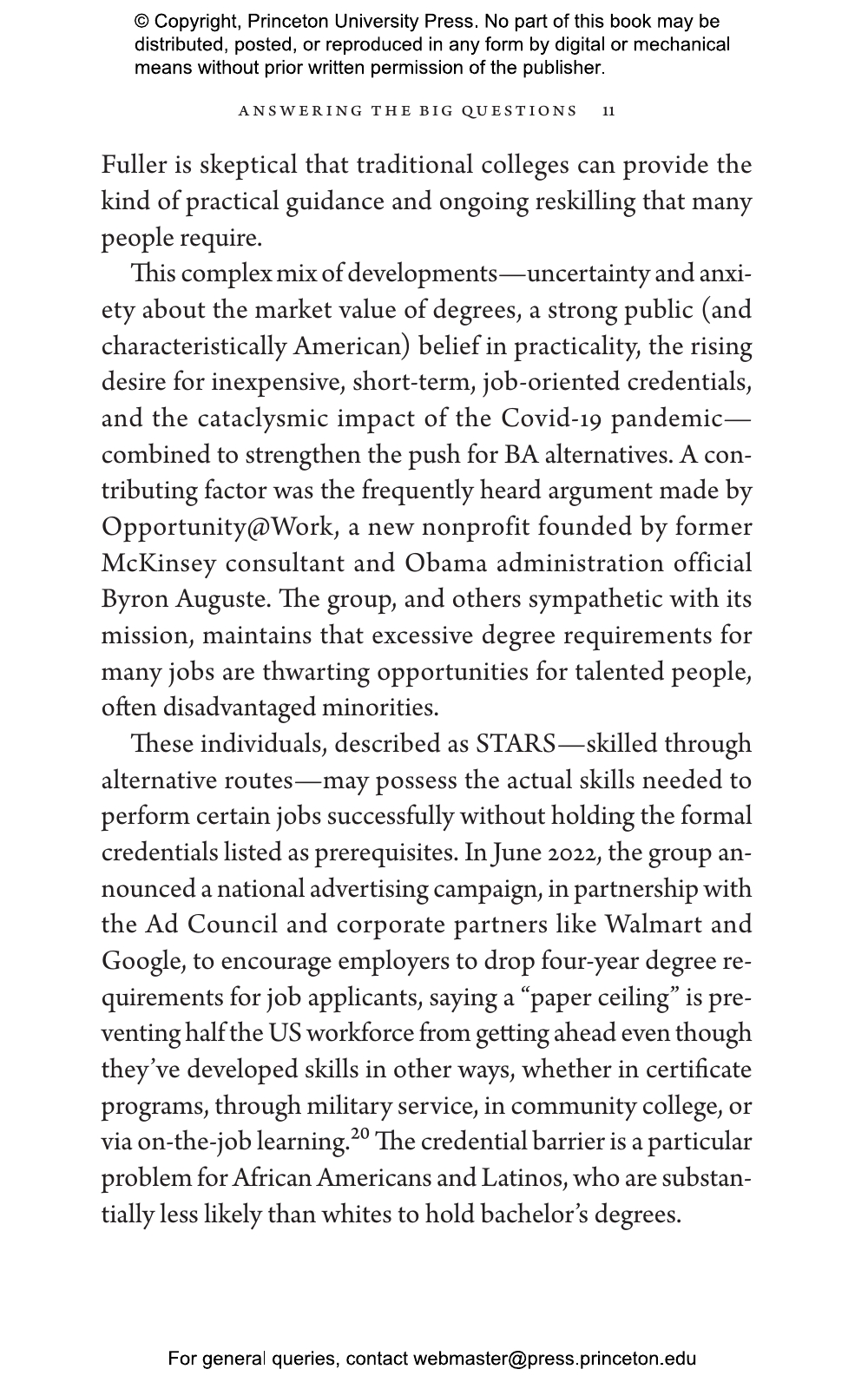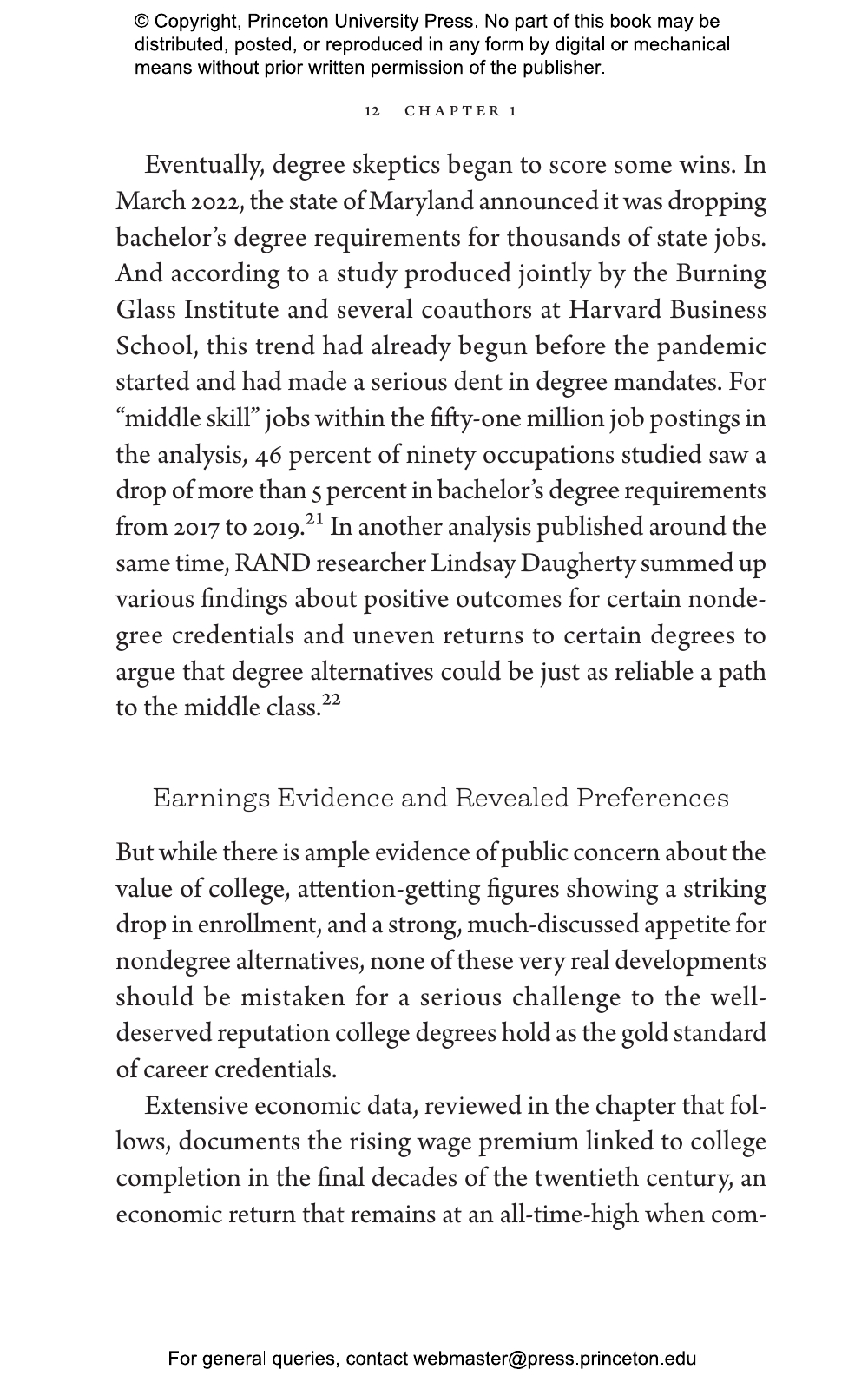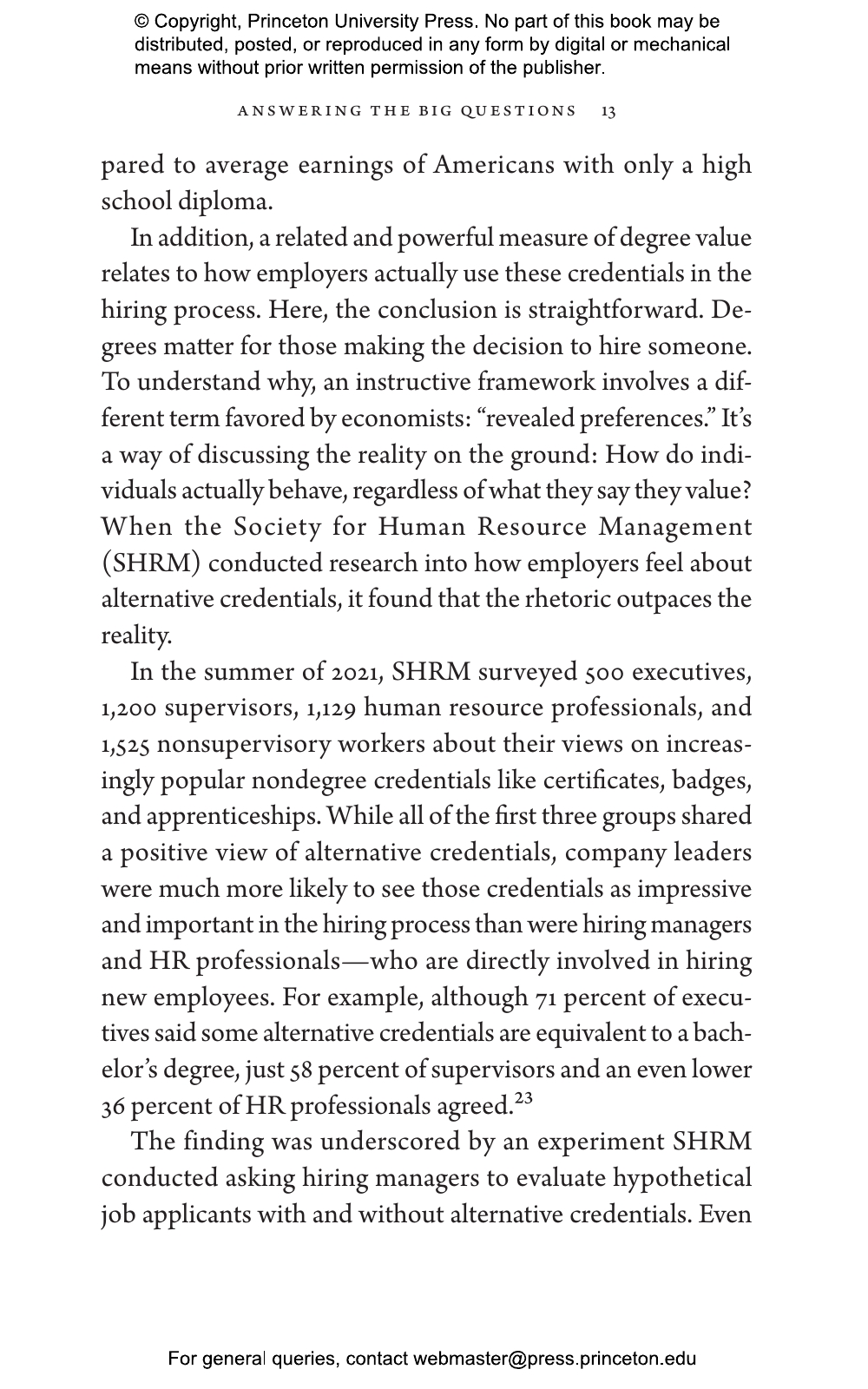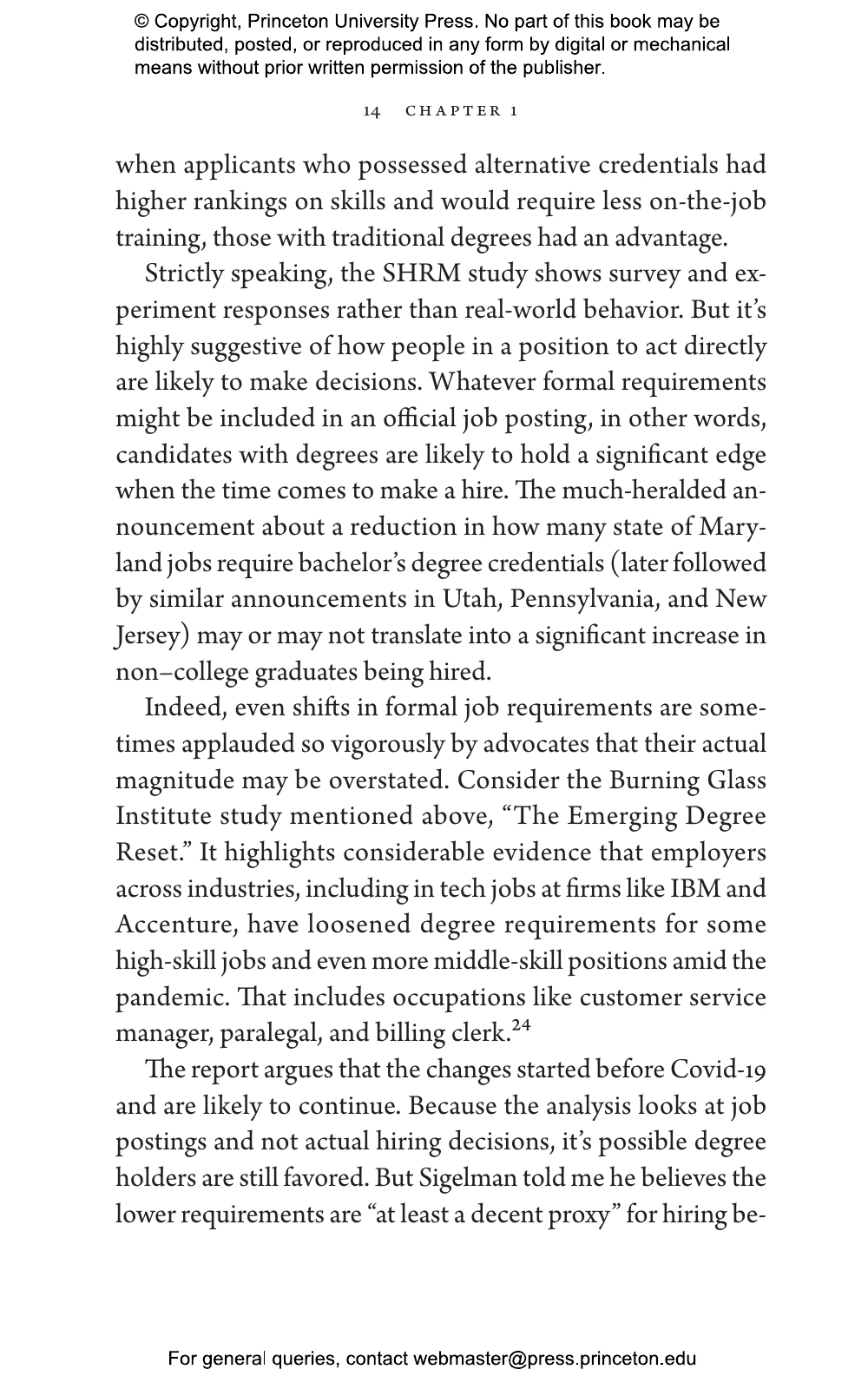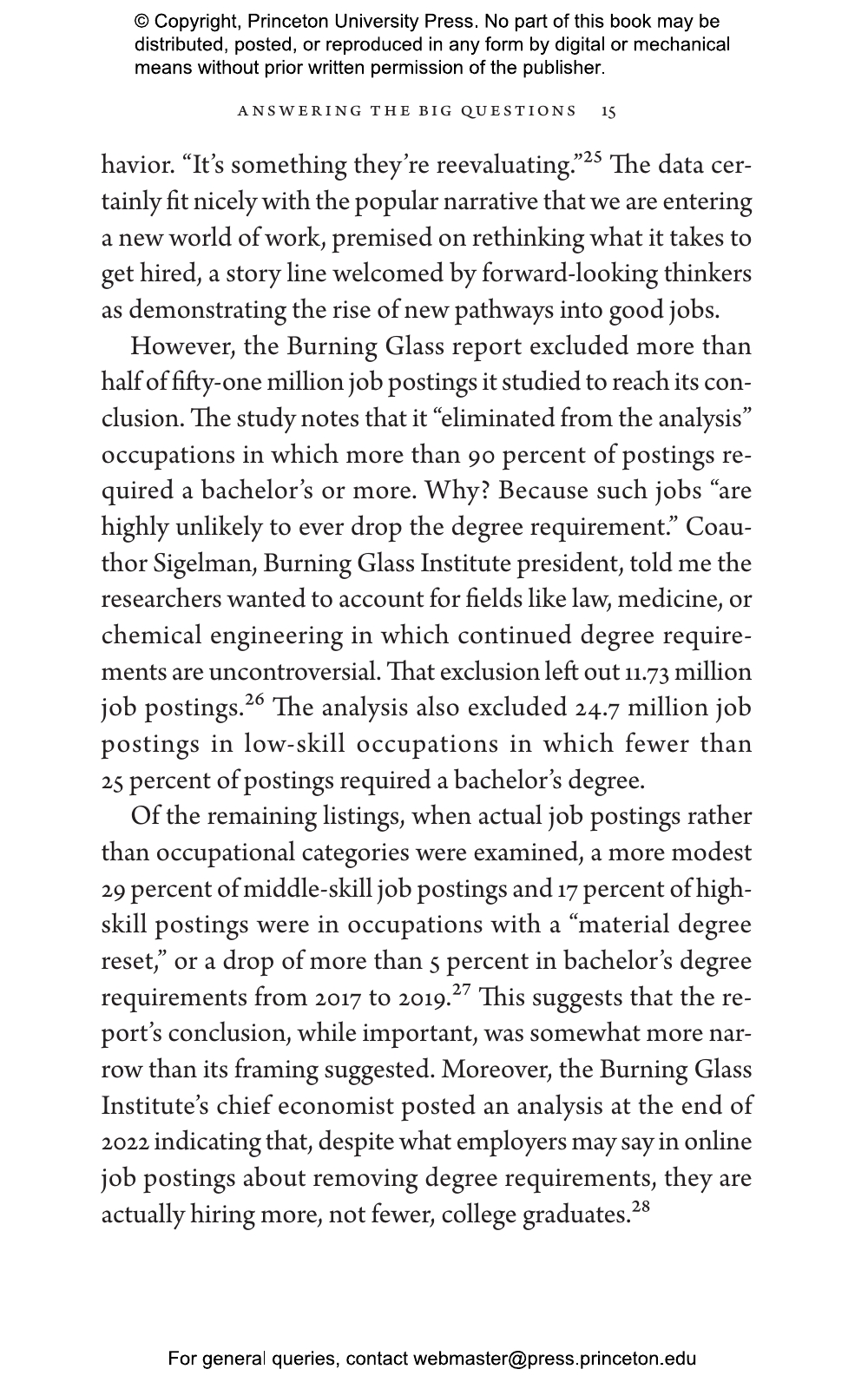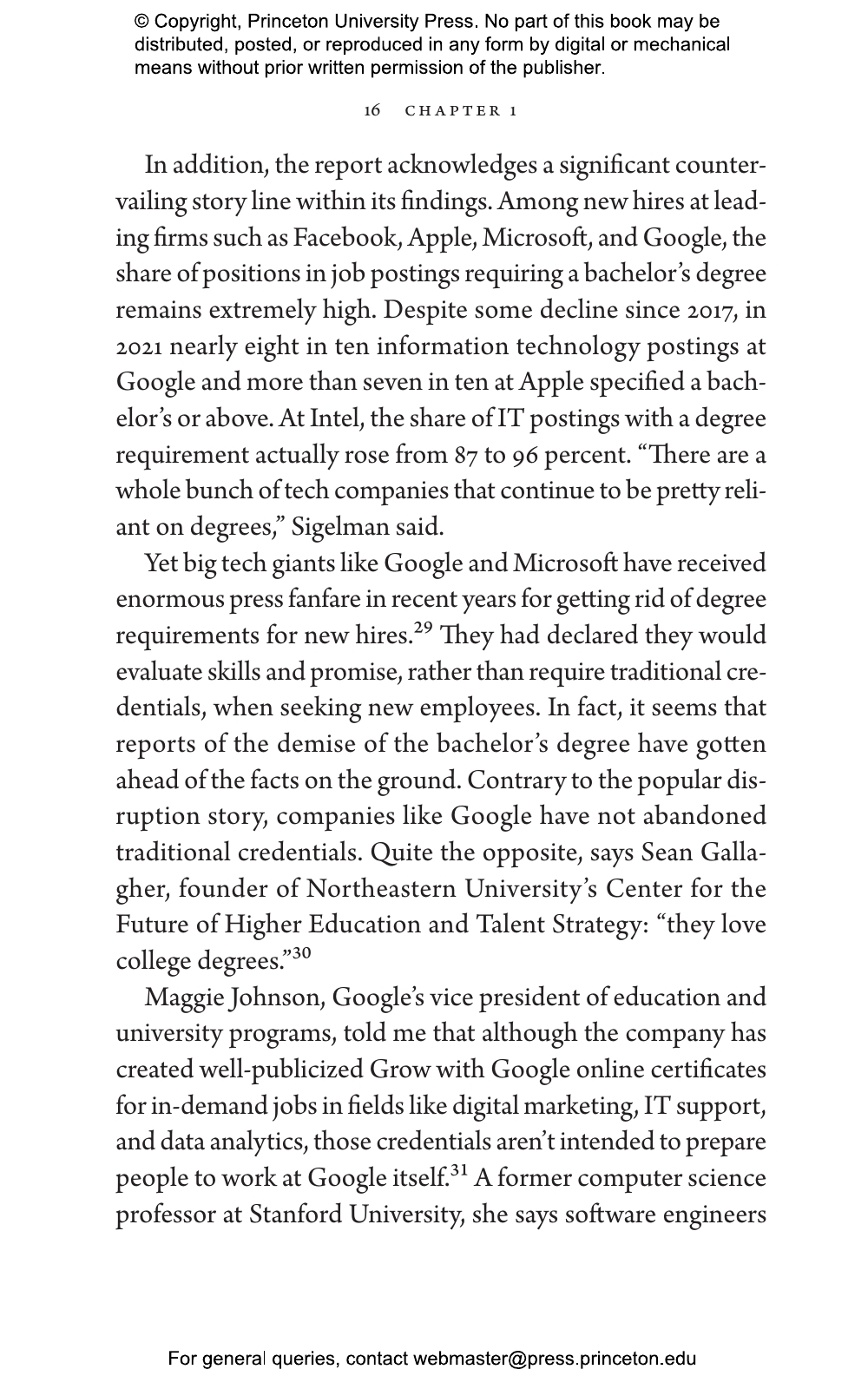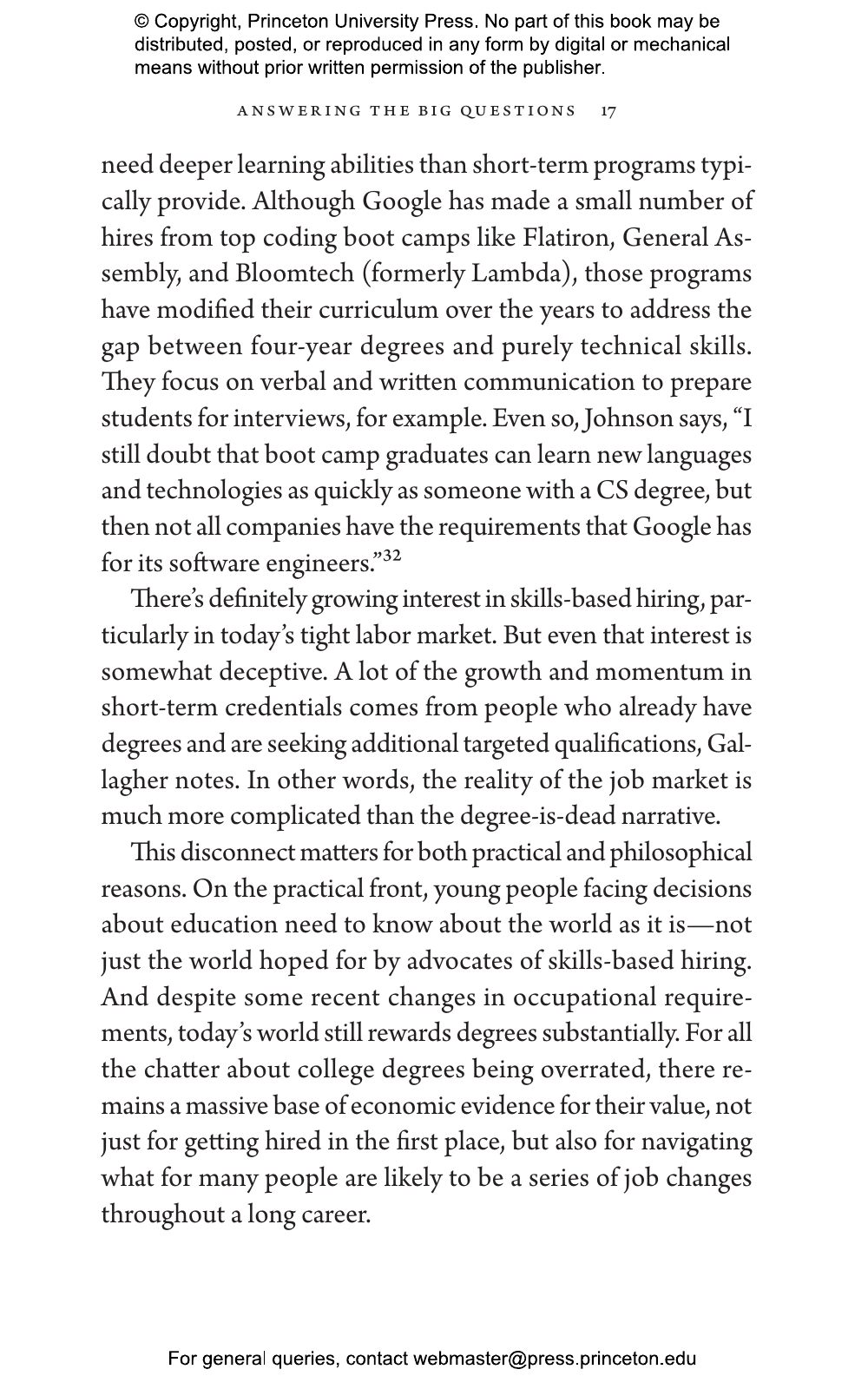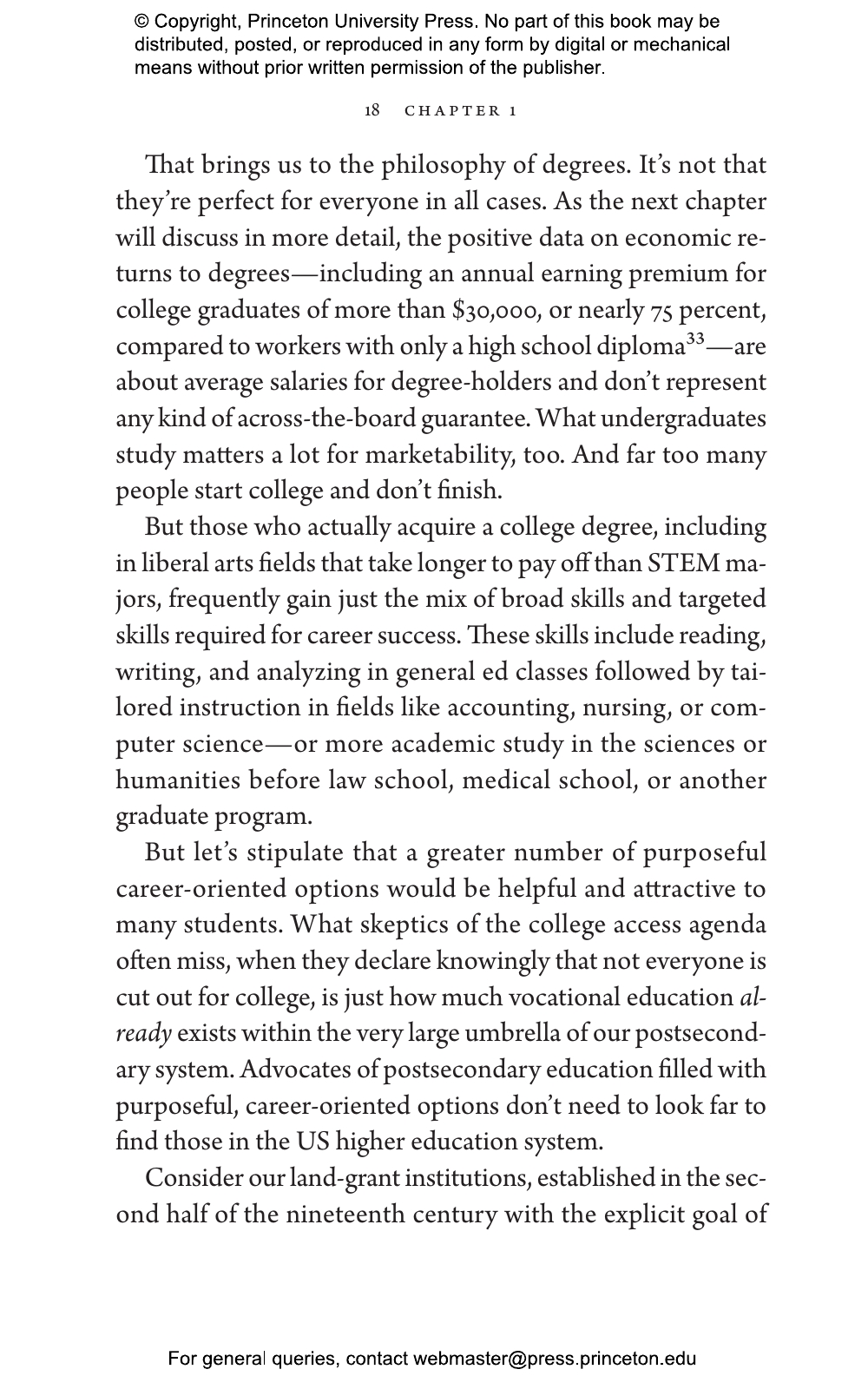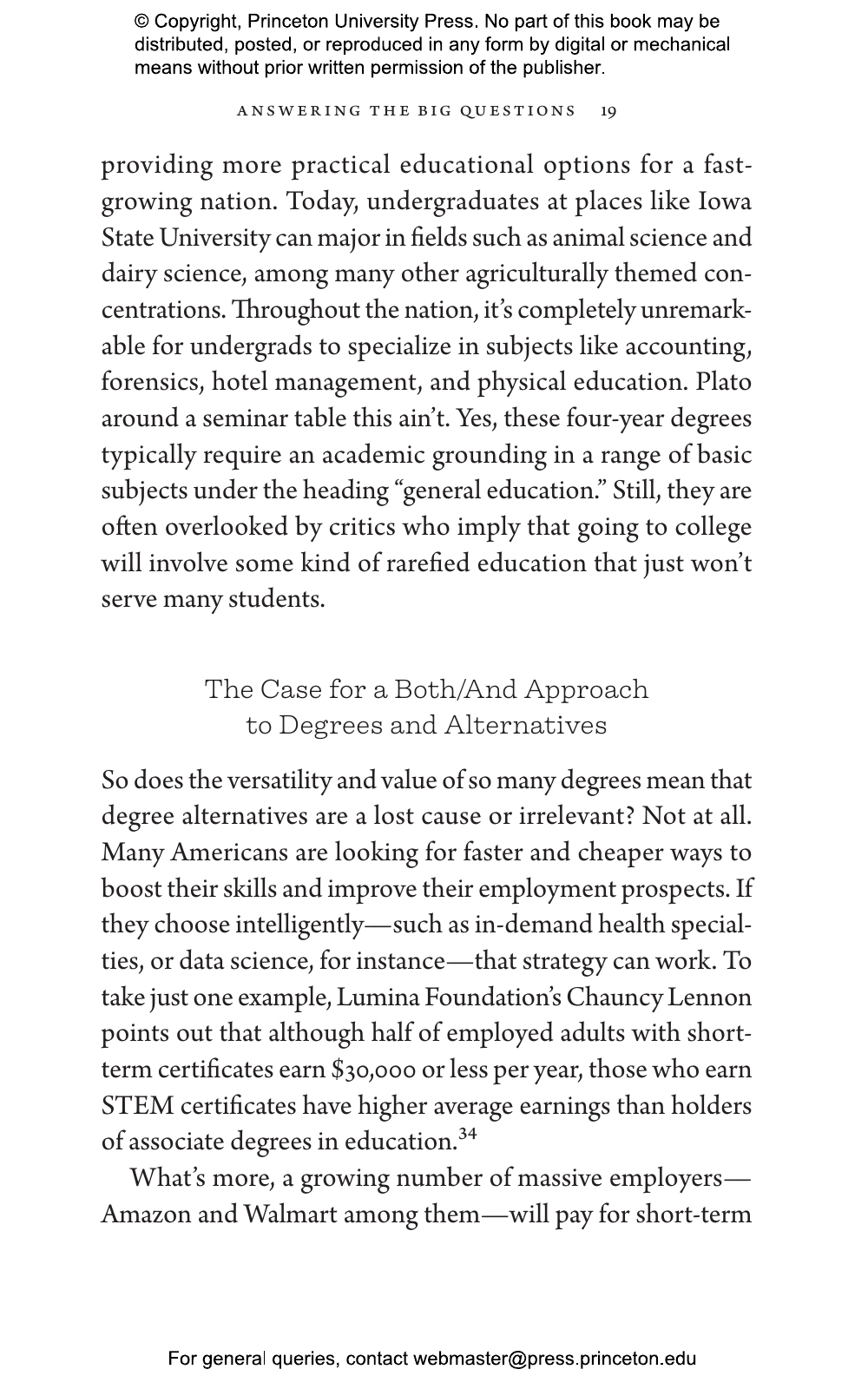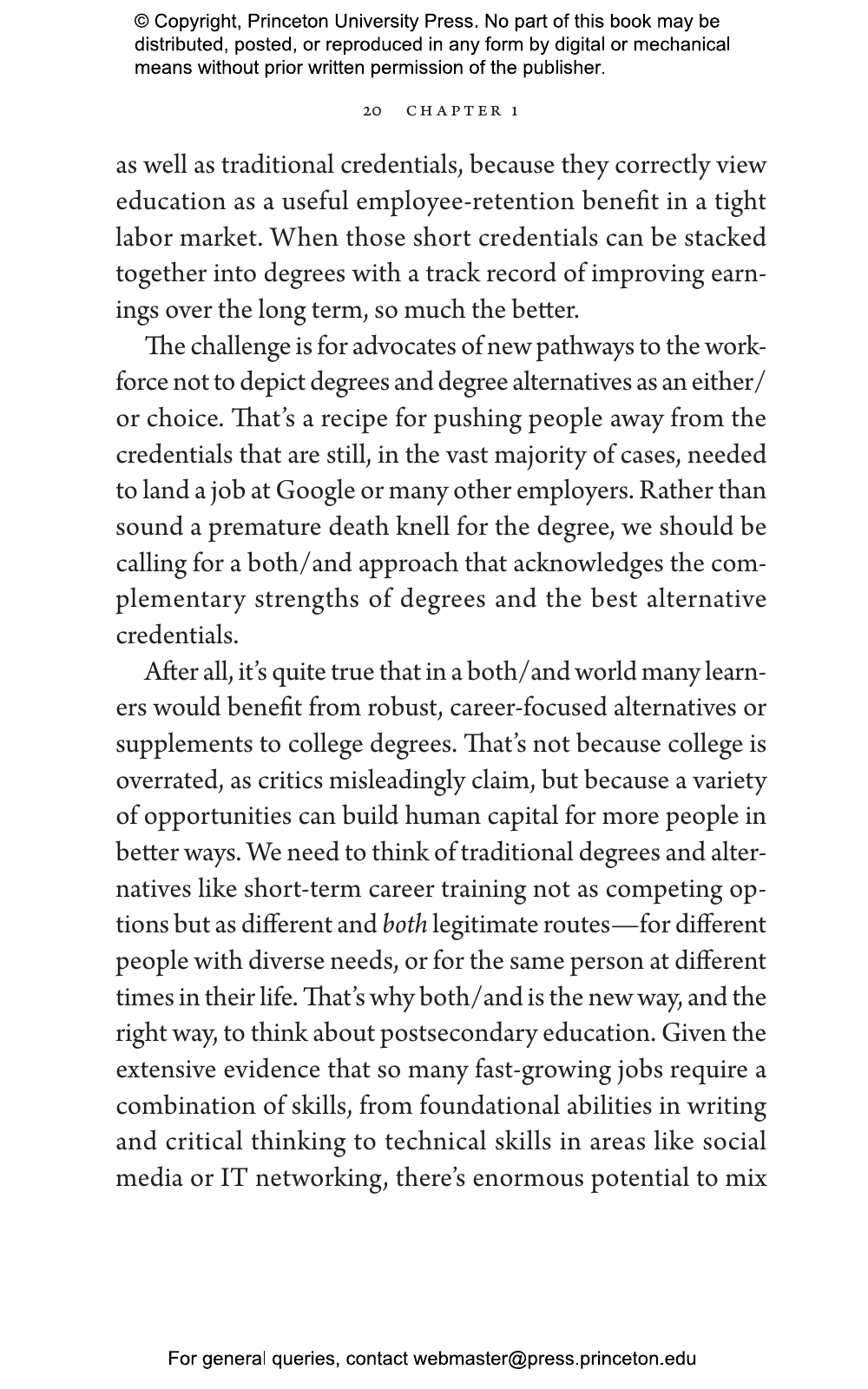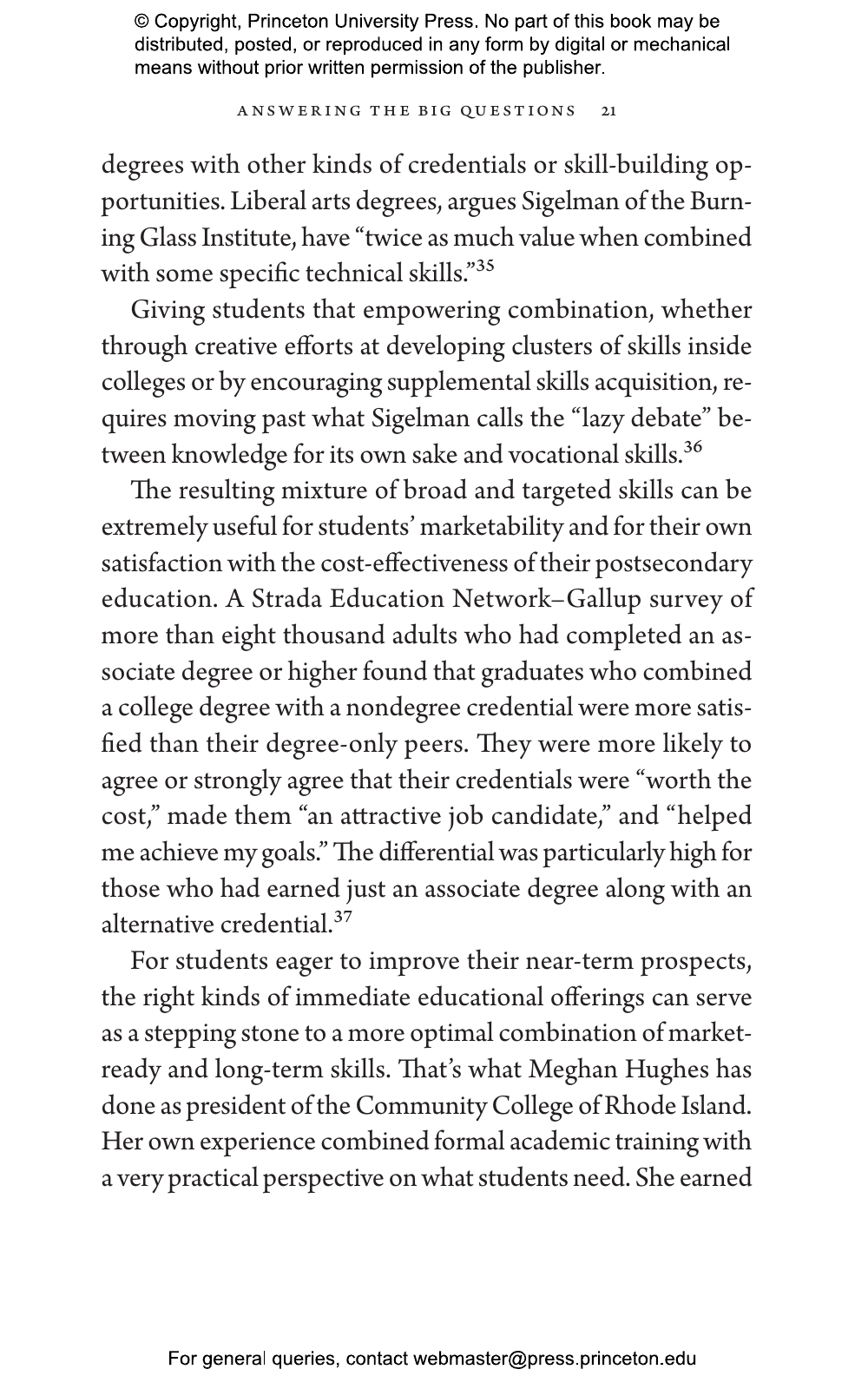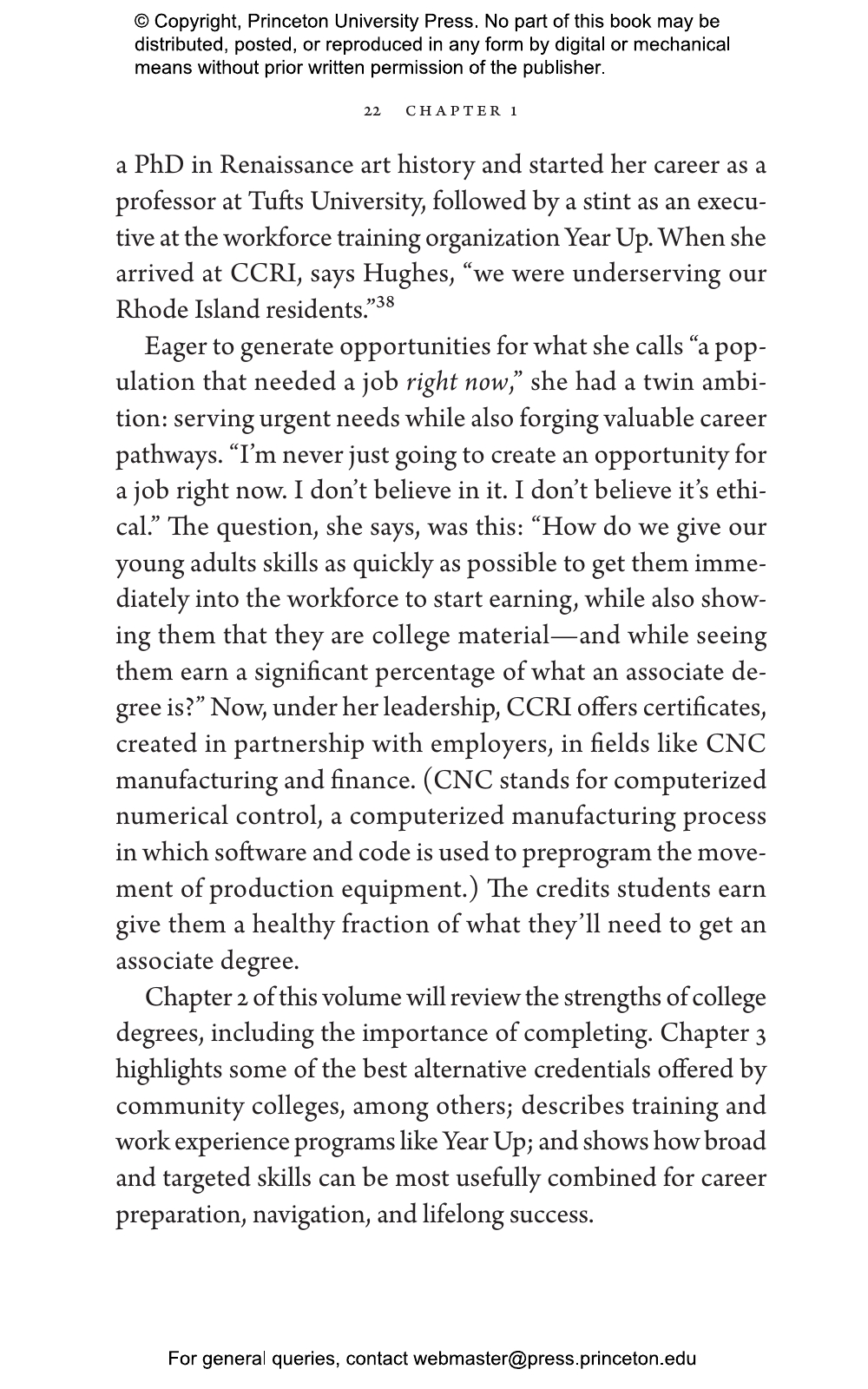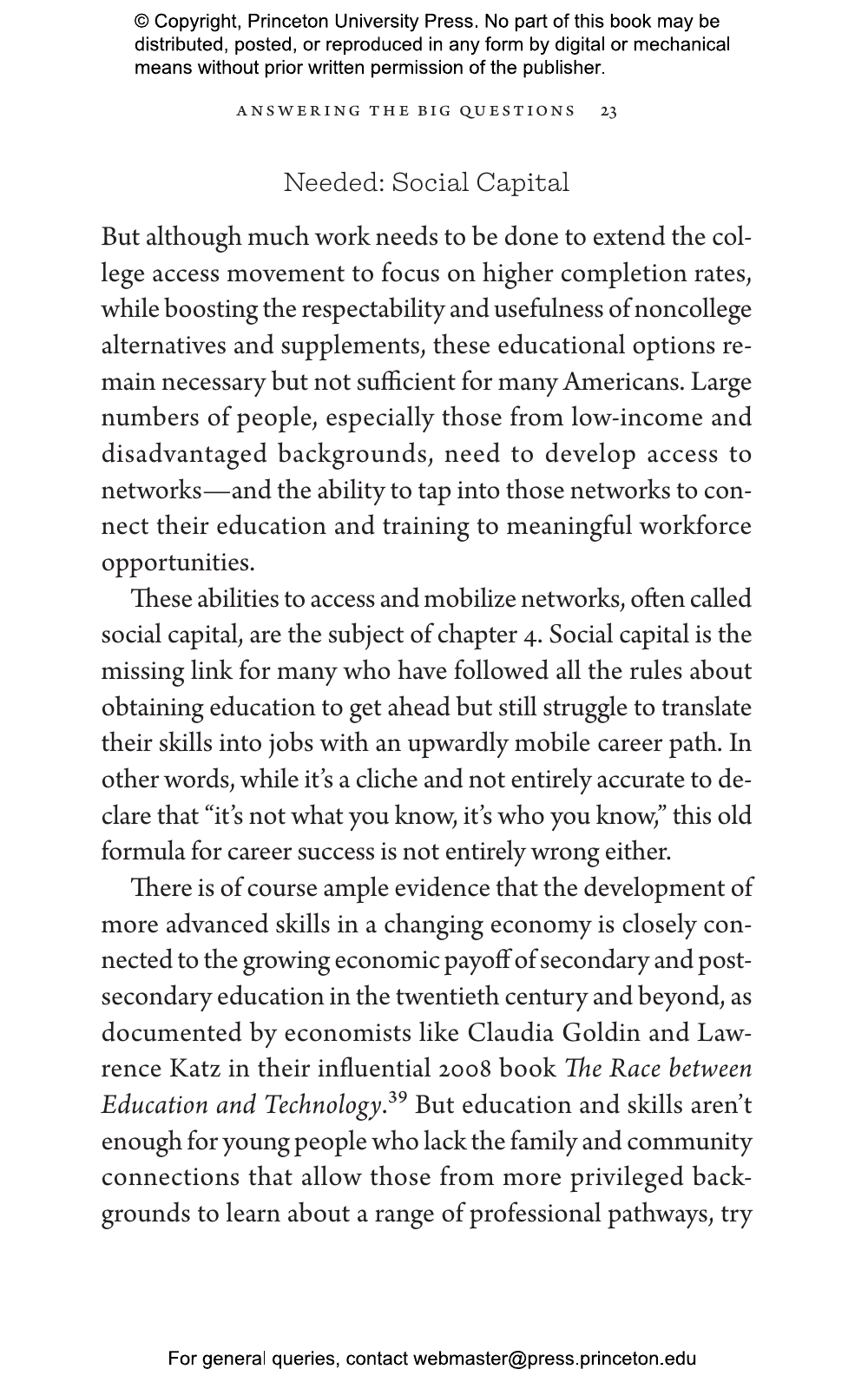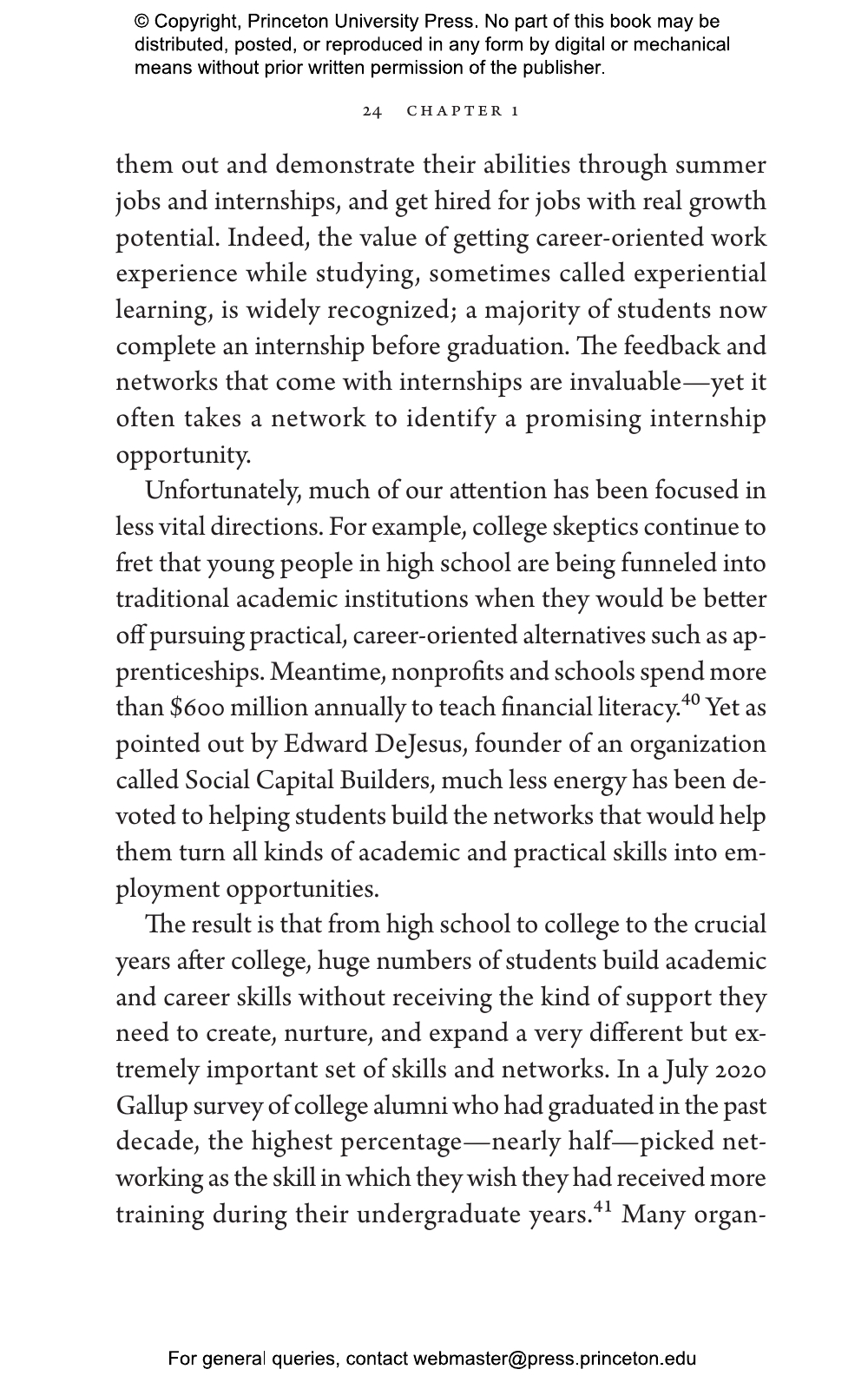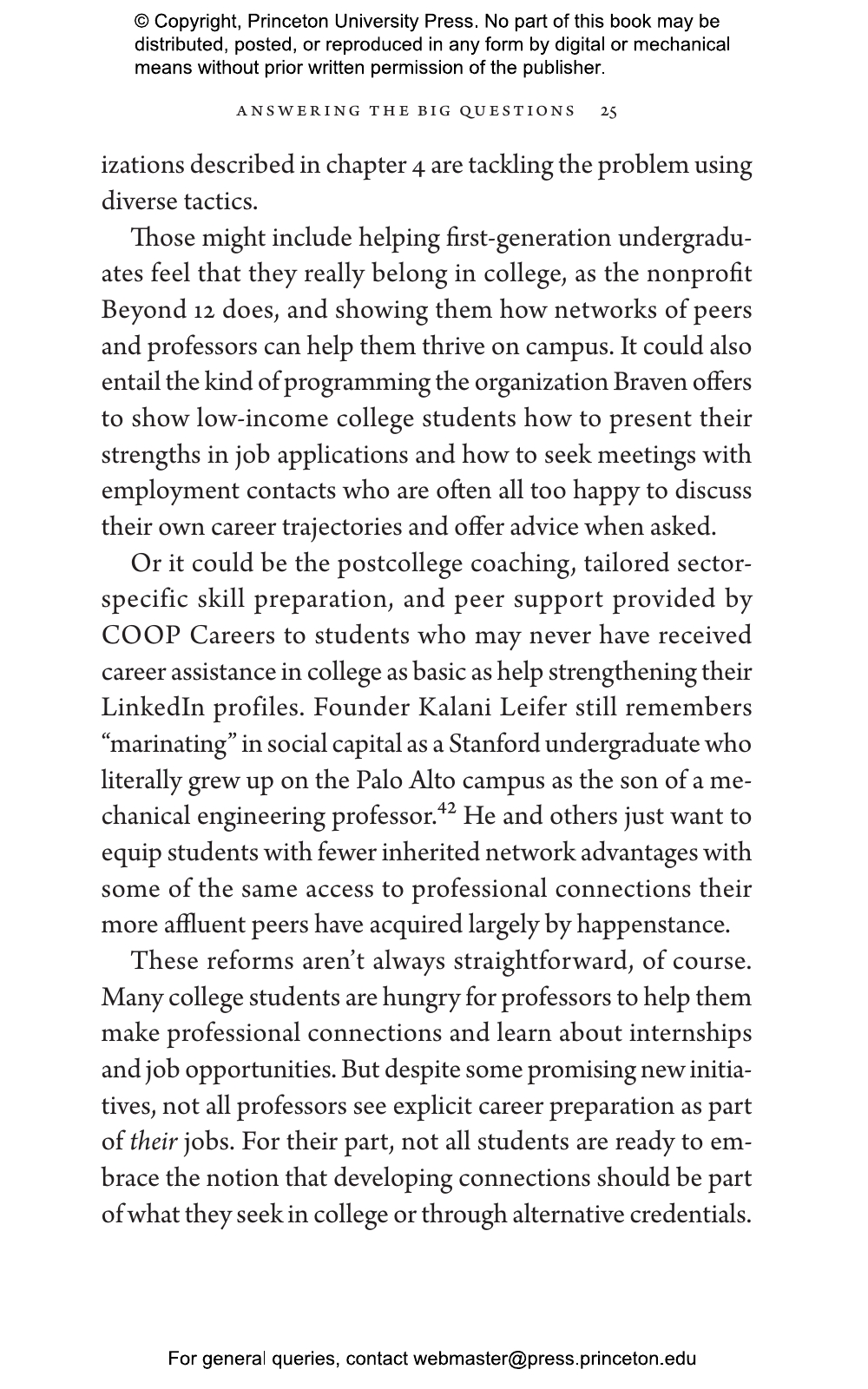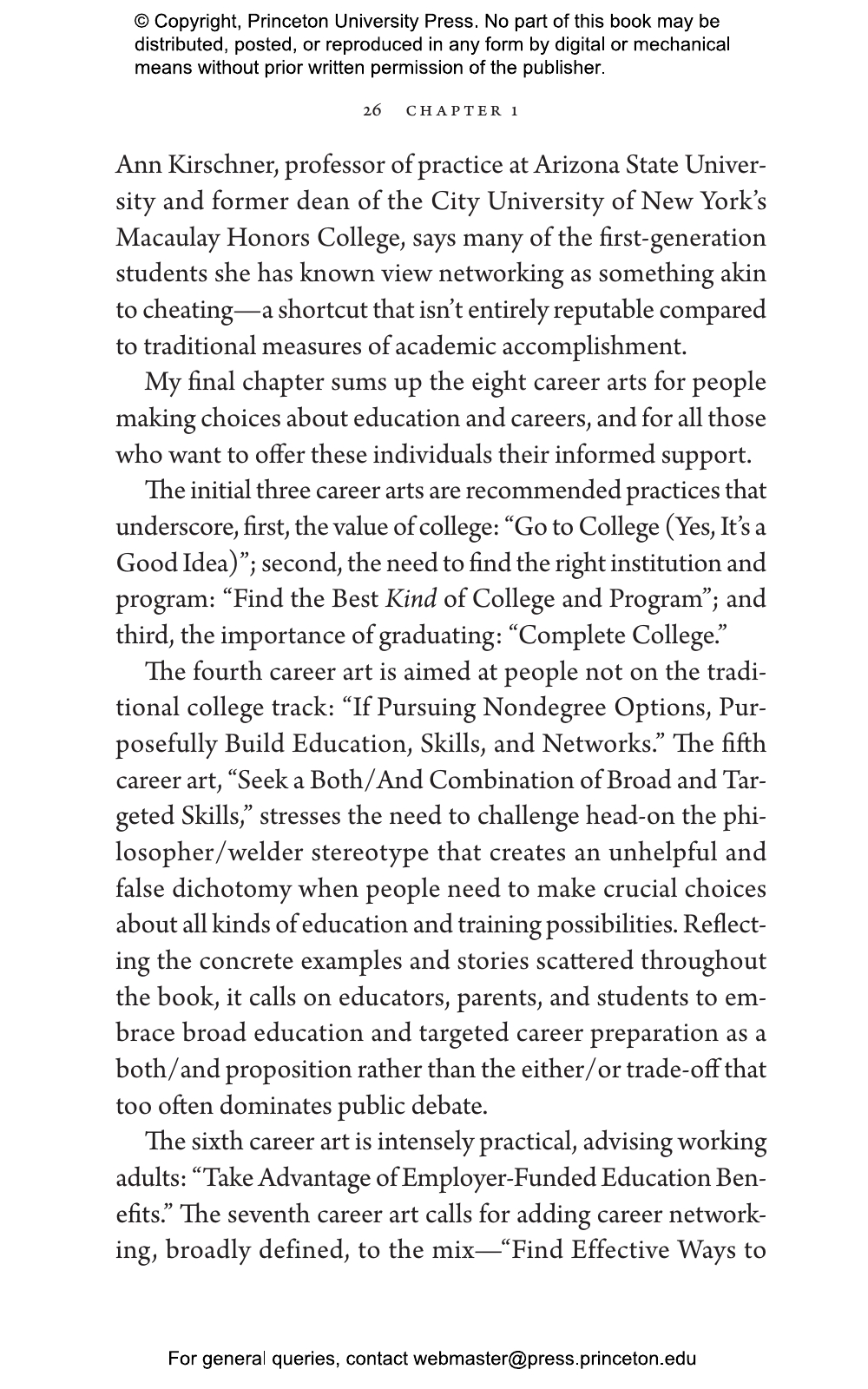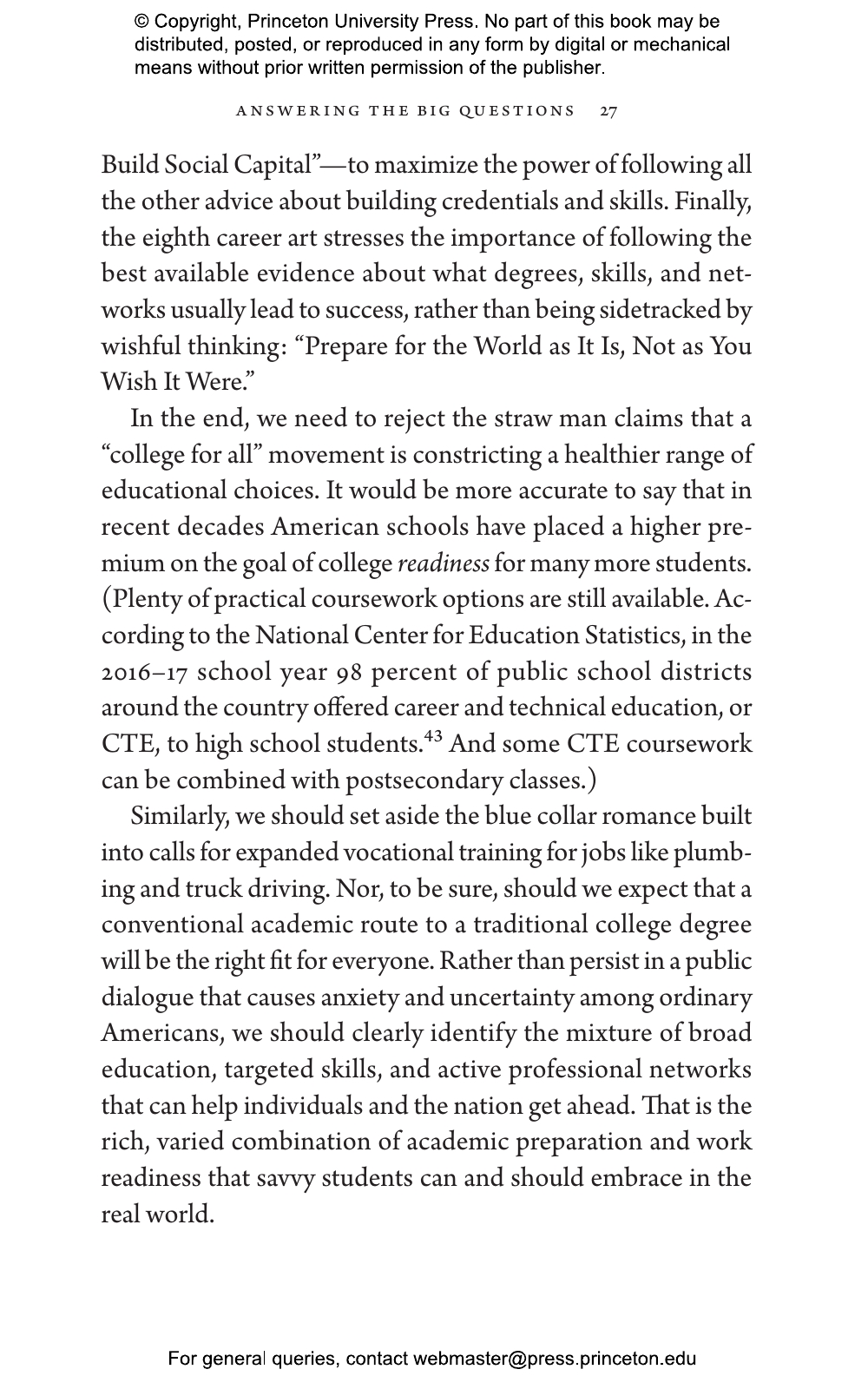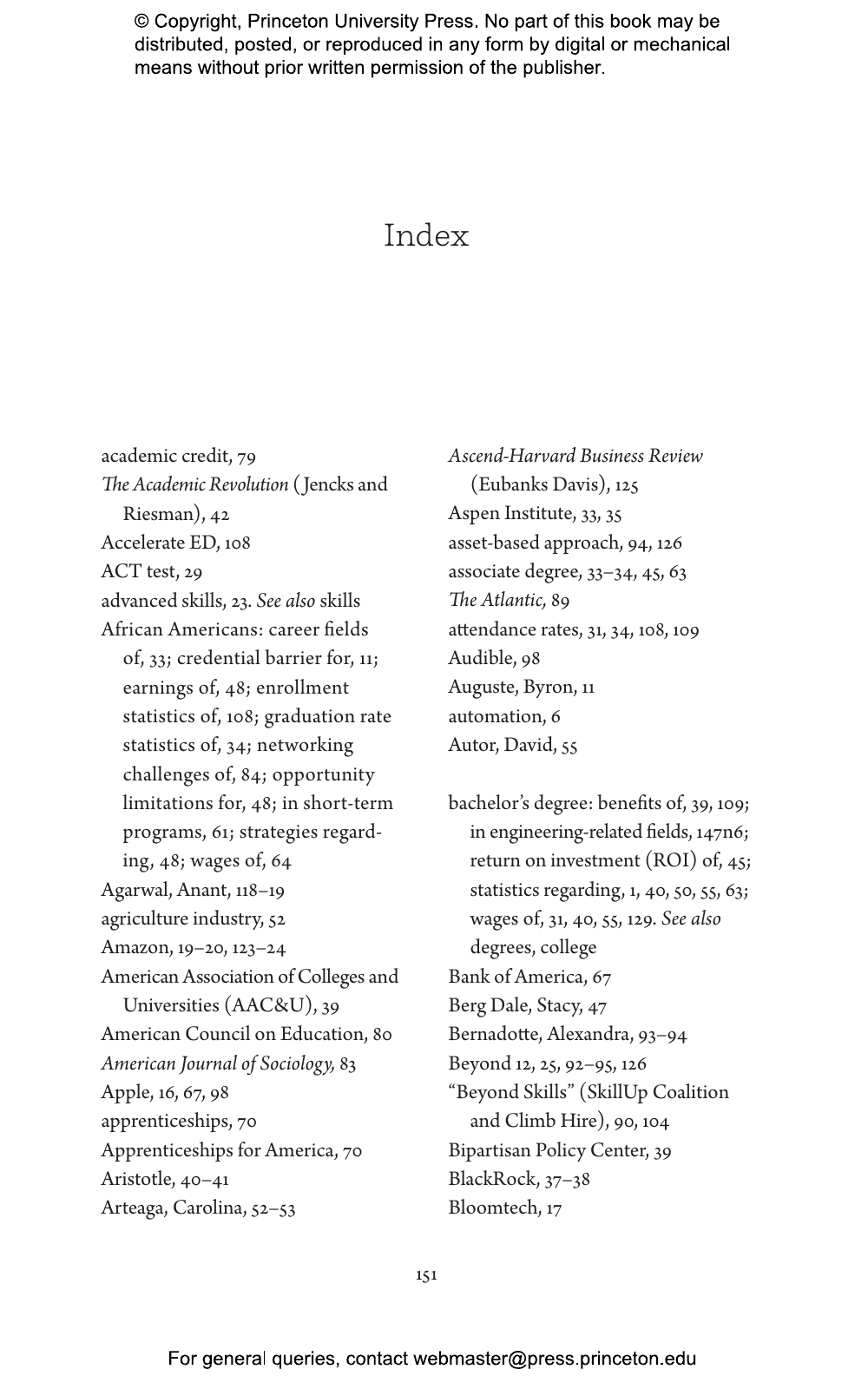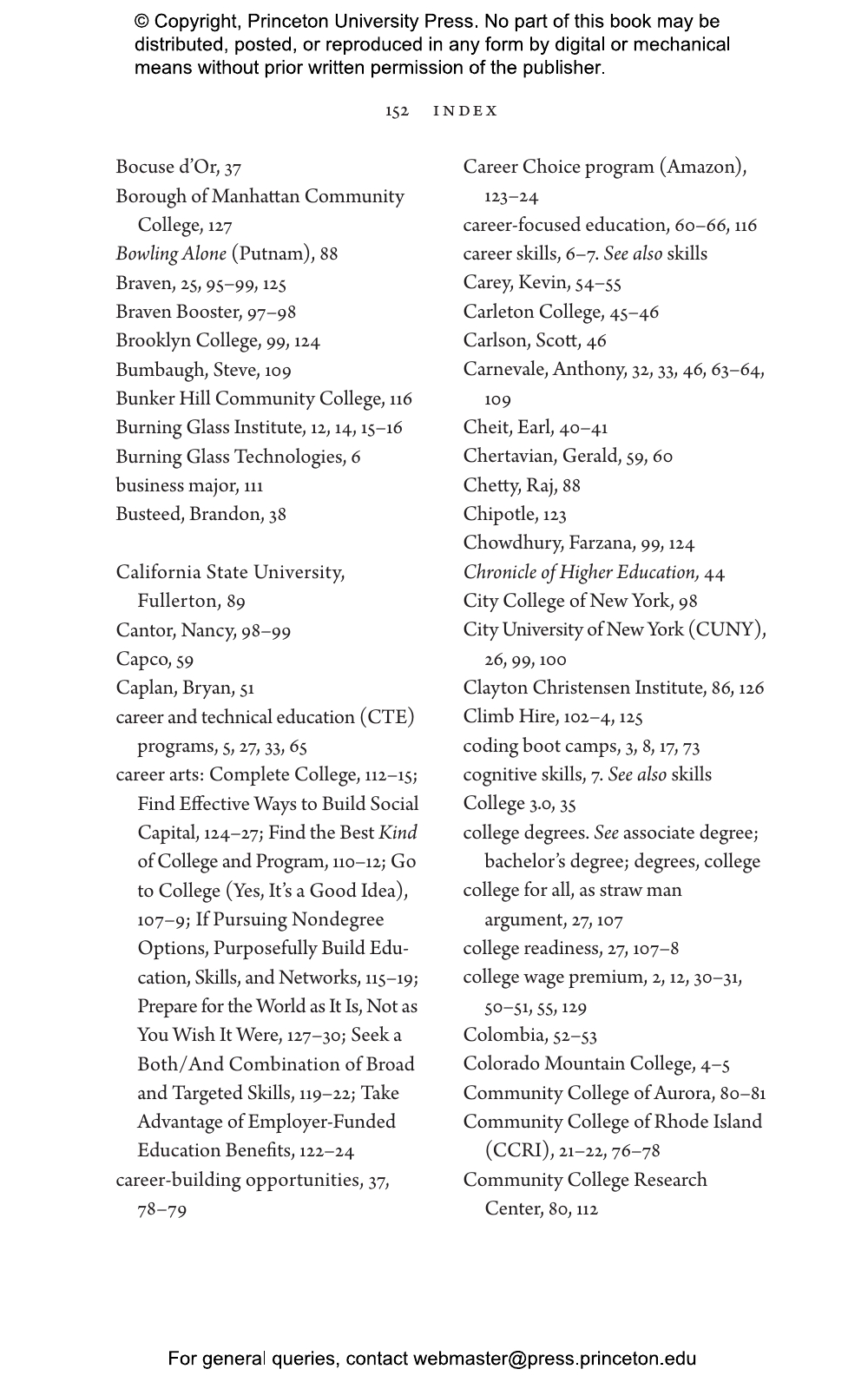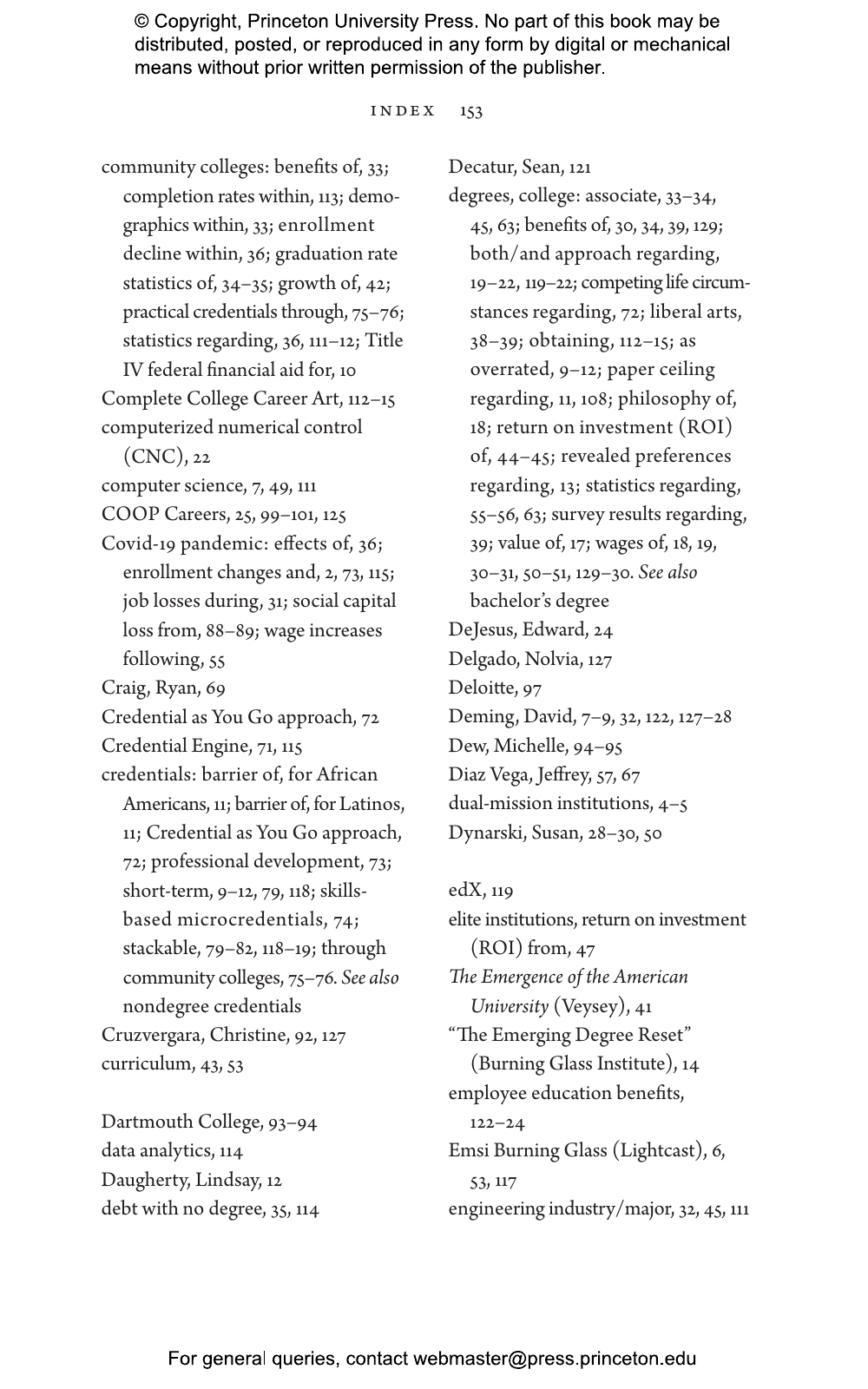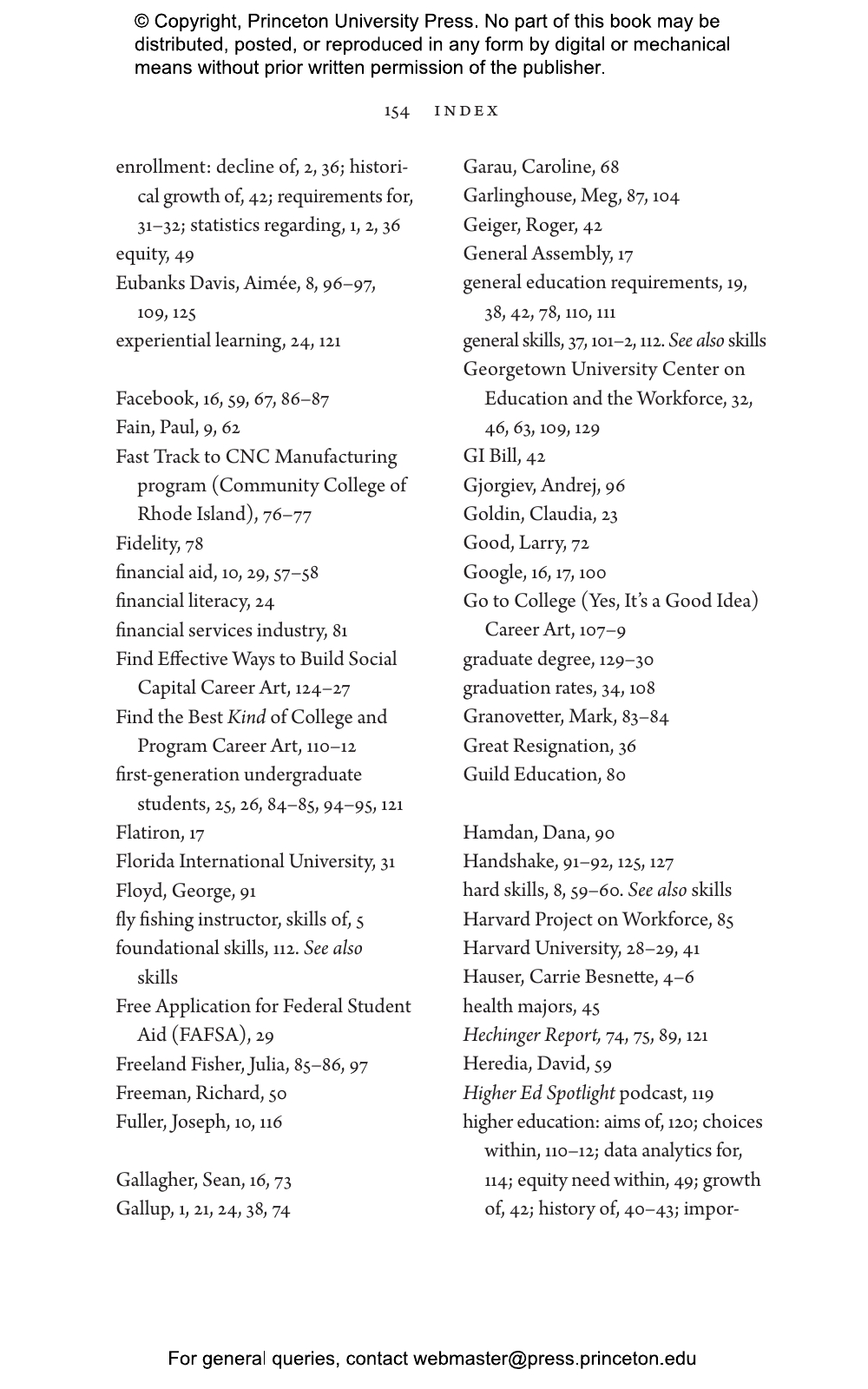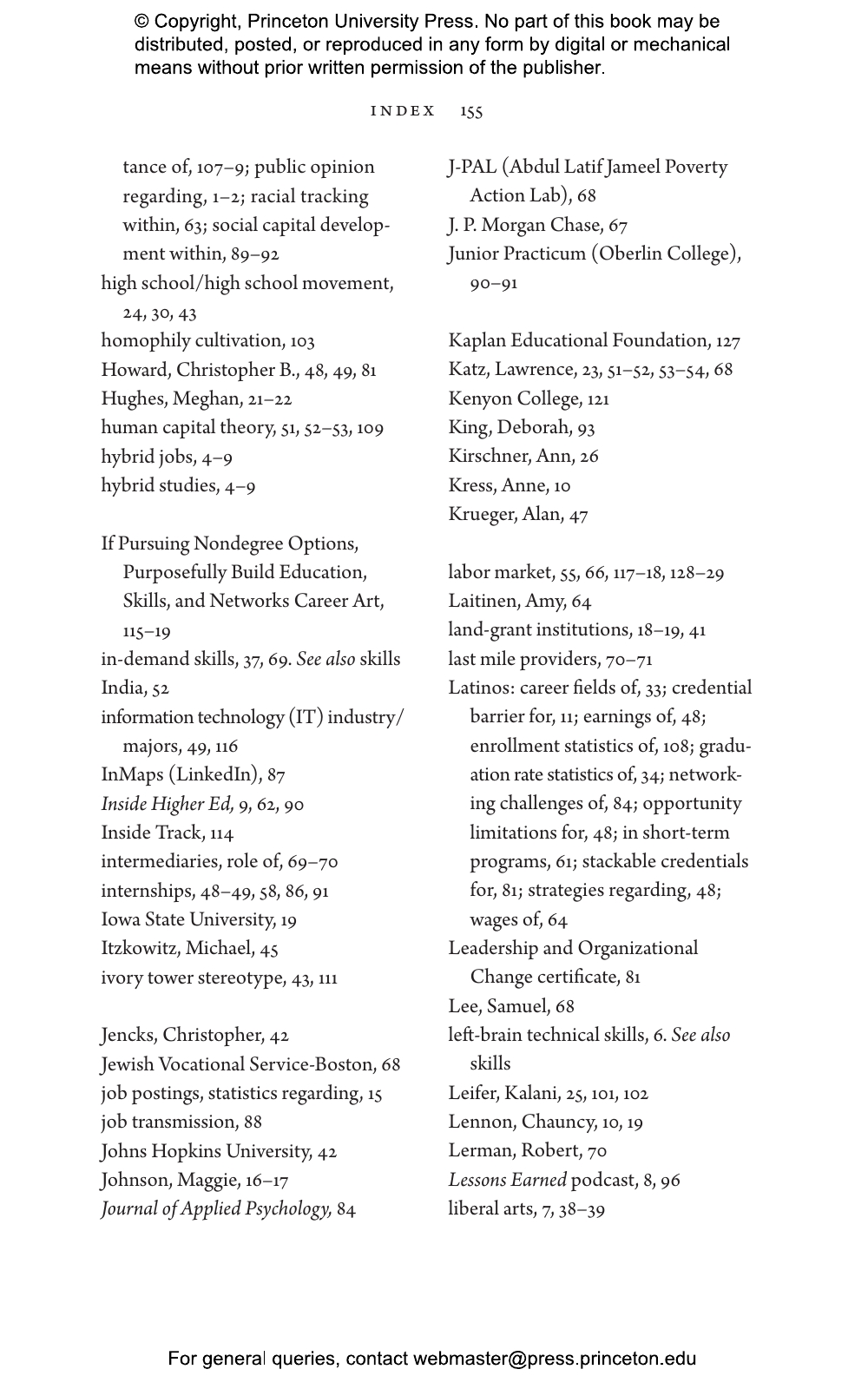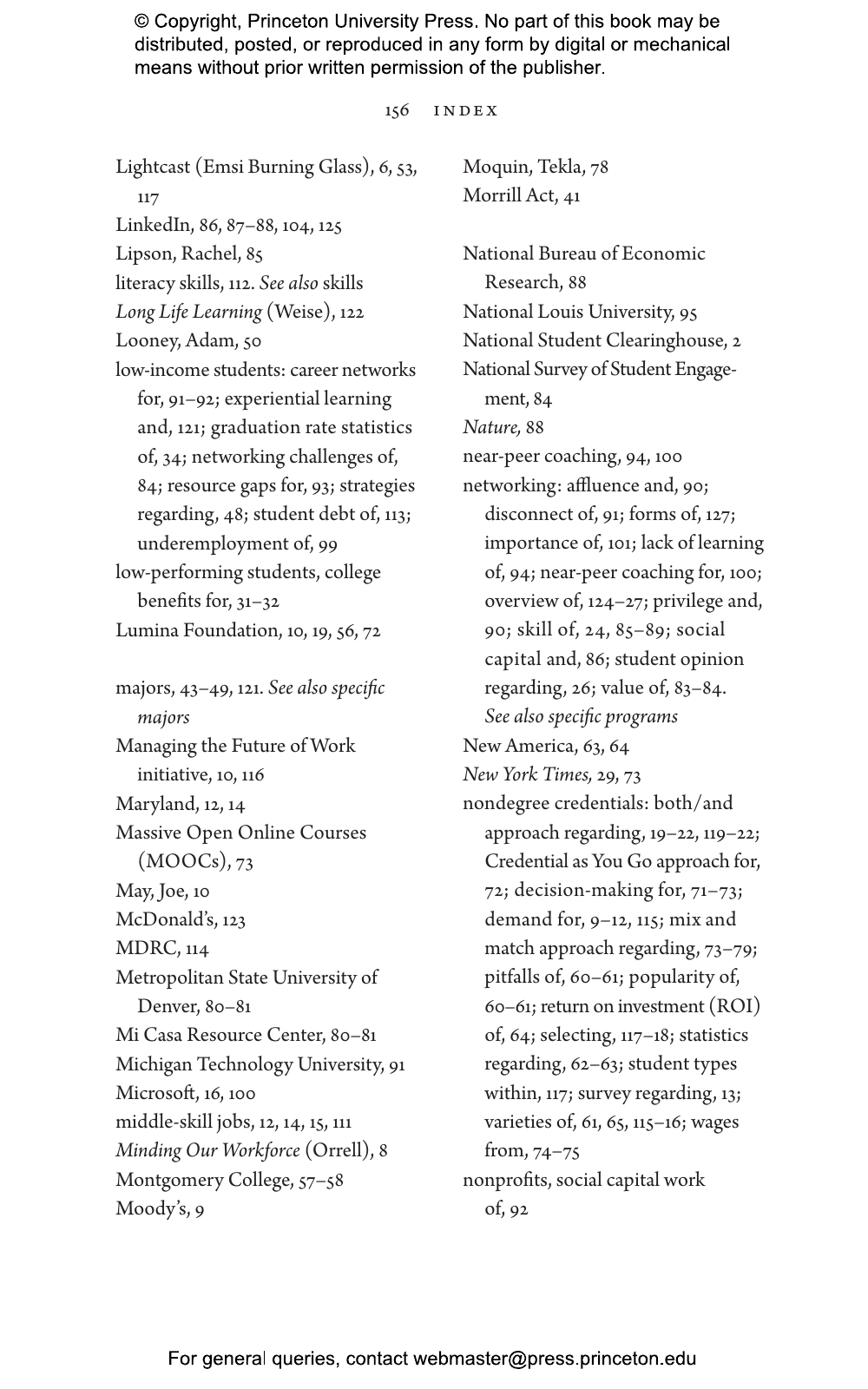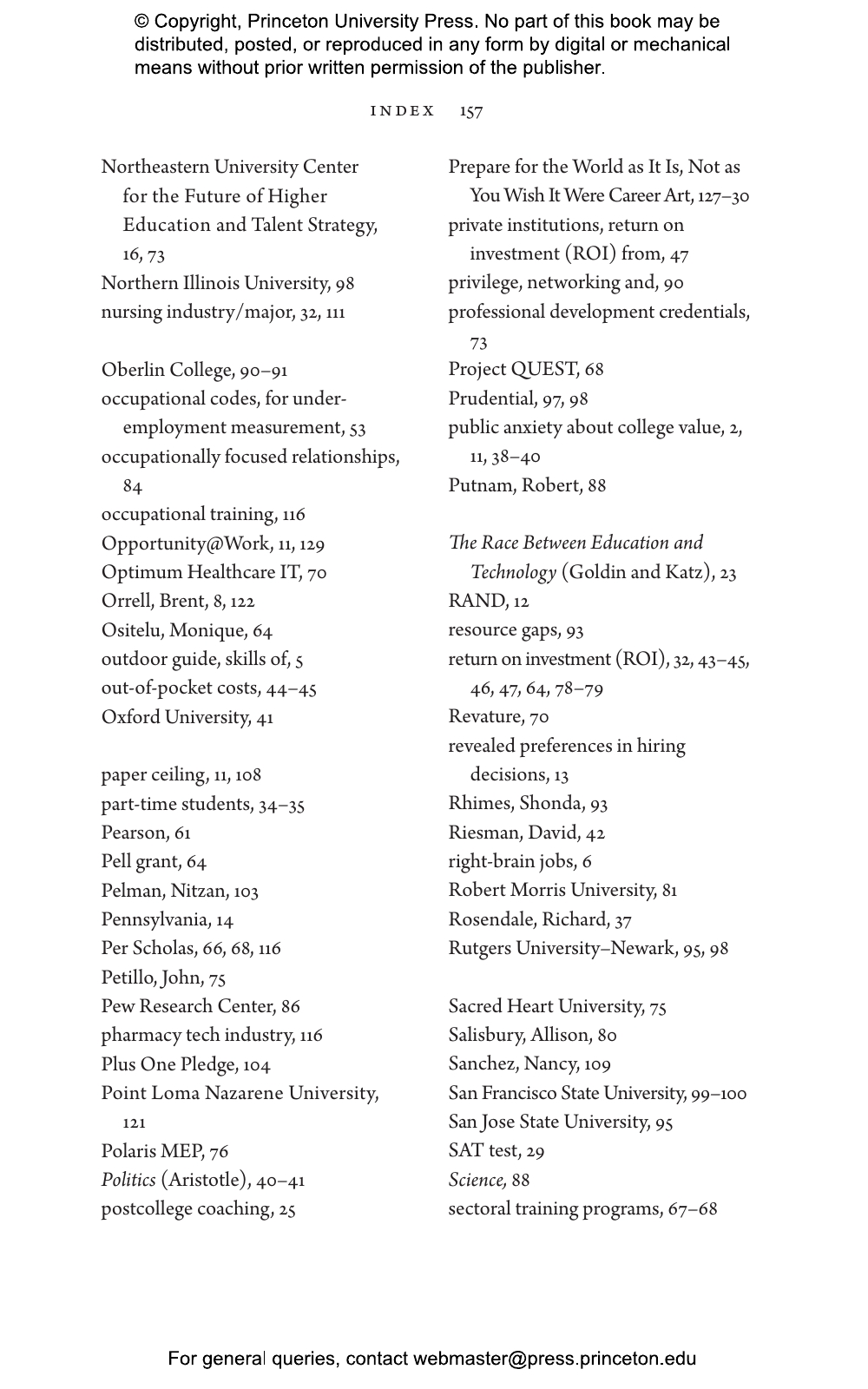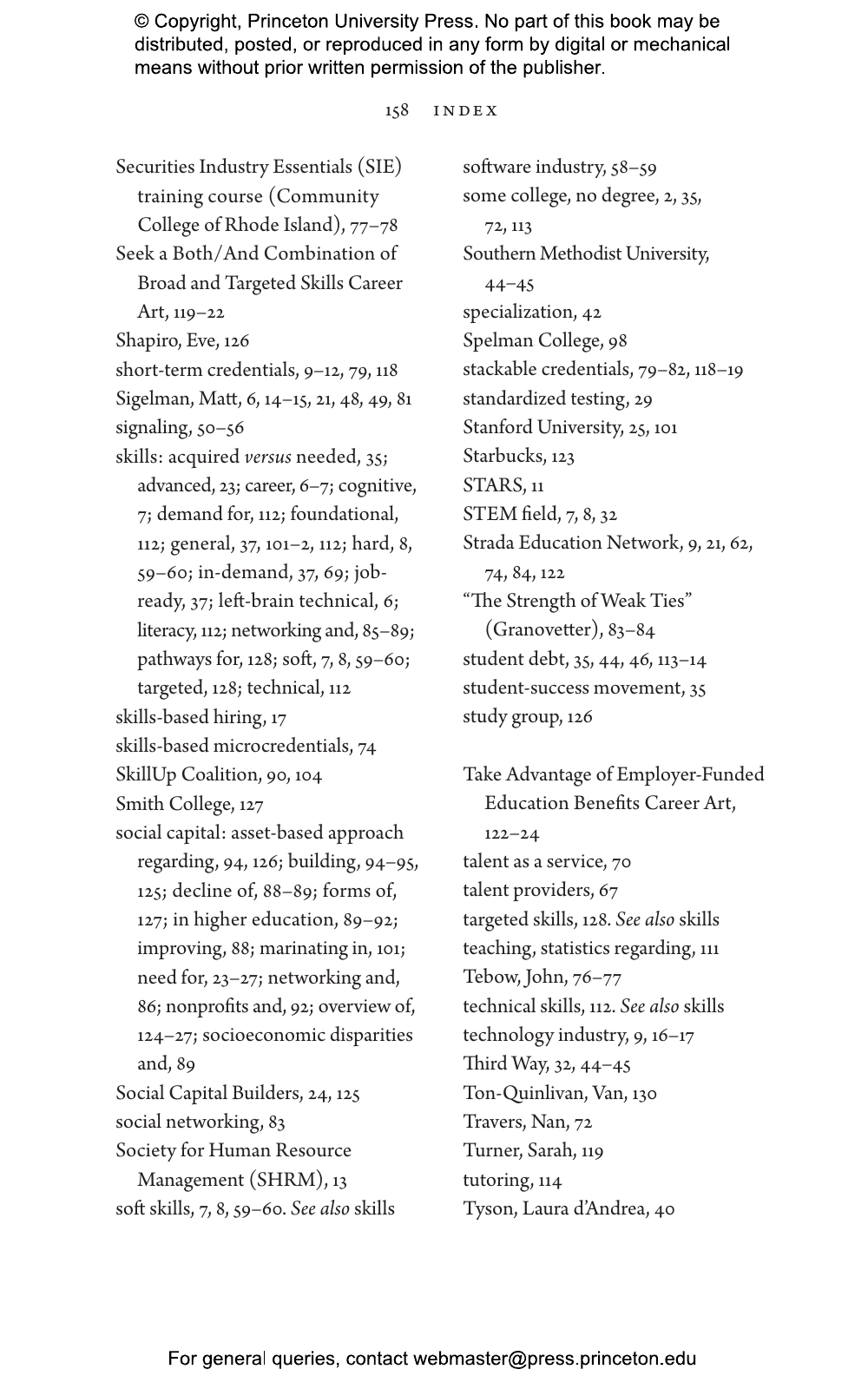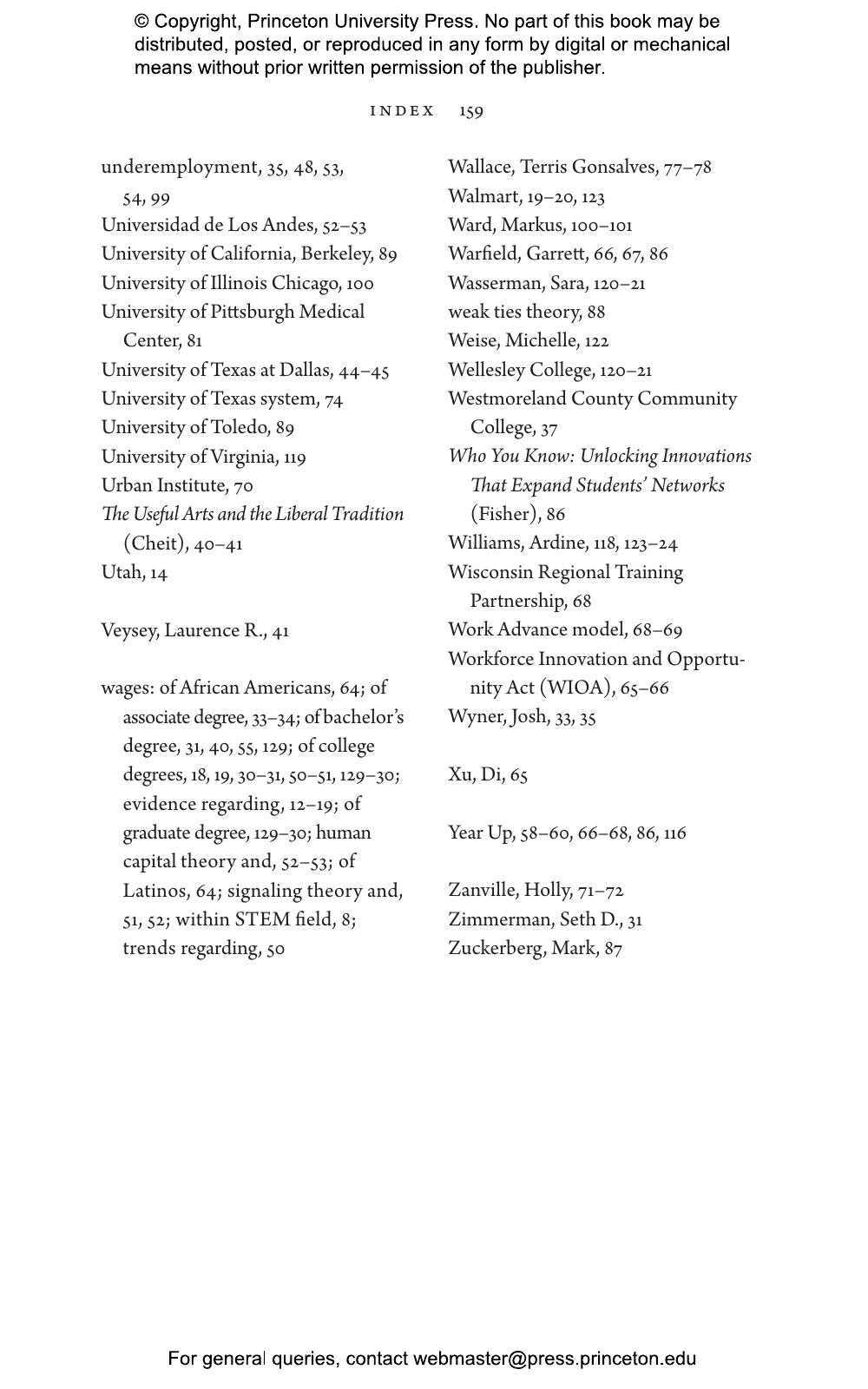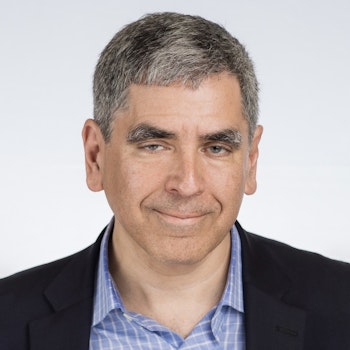Young people coming out of high school today can expect to hold many jobs over the course of their lives, which is why they need a range of essential skills. The Career Arts provides a corrective to the widespread and misleading notion that there is a direct trade-off between going to college and acquiring practical job skills. Ben Wildavsky cuts through the noise and anxiety surrounding this issue to offer sensible, clear-eyed guidance for anyone who is making decisions about education and career preparation with a view to getting ahead in the workforce.
Drawing on evidence-based research, illuminating case studies, and in-depth interviews, Wildavsky shares the most vital lessons of what he calls the career arts, which include cultivating a mix of broad and targeted skills, taking advantage of employer-funded education benefits, and preparing for the world as it is, not as you wish it could be. He explains why college remains the gold standard of credentials, and presents the most promising high-quality supplements and alternatives to college that can help learners combine general and job-specific skills. He shows how building social capital is also critical to success, particularly for disadvantaged students.
An invaluable guidebook for students, parents, counselors, and educators, The Career Arts reveals why college education and job preparation are not either-or propositions and identifies the blend of education and networking needed to support real-world career aspirations.
"[A] a level-headed discussion of the abiding value of a college degree and why earning one is compatible with acquiring the practical skills valued in the workplace."—Michael T. Nietzel, Forbes
"Readers will learn eight essential skills for career success, such as completing college or looking for educational options that give them a mix of broad and targeted skills, taking advantage of employer educational benefits, and most importantly, preparing for the world as it is. . . . [The Career Arts's] positive tone and clear writing will appeal to students, parents, and educators."—Library Journal
"One of the clearest assessments of the need to blend higher education and workforce development I’ve read in years. Well-documented and positive in presentation. Great takeaways that can be of great use with governing boards, legislators, and others. I genuinely recommend."—Bennett Boggs, Commissioner of Missouri Department of Higher Education & Workforce Development
"The Career Arts offers readers—whether working in the higher education sector already, advising prospective students, or students making decisions for themselves—several arguments based on economic data to combat misperceptions about a college degree’s waning relevance in the labor market. . . . [and] provides an overview of promising directions that could help drive positive student postsecondary outcomes and examples of programmatic initiatives that could inspire action by campus leaders to change the status quo and better meet student needs."—Caroline Tucker, Harvard Educational Review
"At a time when the value and role of a college degree is being questioned by so many, Ben [Wildavsky]'s book provides key insights and lessons from innovators around the country."—Maria Flynn, President and CEO of Jobs for the Future; Forbes 50 Over 50
"The Career Arts is slim (pack it in your tote!), practical (a great gift for parents!) and compelling (with deep insights into the value of college, credentials, and - especially for those not born with rich social capital -connections)."—Joellen Perry, Global VP at SAP
"The Career Arts [is] a refreshingly clear survey of today’s many educational paths toward better careers. . . . [it] is upbeat about the rise of fast-paced skills training, while still supporting an important role for the slower, deeper tempos of a classic four-year college degree."—George Anders, LinkedIn
"We’ve long known that a sound education should fill a resume and feed the soul. Ben Wildavsky certainly thinks so, and he lays out an excellent case in The Career Arts."—Eric Johnson, Public Ed Works
"This short and timely book is aimed at ‘anybody seeking to understand how to get ahead’. . . . Much of the evidence brought skillfully together by the author Ben Wildavsky promotes familiar lessons - for example that so-called soft skills can be just as important as job-specific ones. . . . [The Career Arts] makes it abundantly clear that those headlines claiming degrees are no longer as helpful as they once were are often flat out wrong."—Nick Hillman, HEPI
"For too long, our debates on post-secondary education have taken a binary form: either 'college for everyone' or 'learn a trade'. . . . [Wildavsky] puts adaptability front and center in his recent book The Career Arts. In doing so, he helps to fight back against the false dichotomies that riddle discussions about post-secondary education."—Brent Orrell and David Veldran, The Dispatch
"[A]n excellent guide to the literature on the benefits of an undergraduate degree, and specifically debunks many of the irritating ‘higher education is no longer worth it’ screeds that are (inaccurately) popping up everywhere."—Alex Usher, President of Higher Education Strategy Associates
"Thoughtful, useful, accessible—and short!"—Bryan Alexander, Host of Future Trends Forum
“In a time of extraordinary change in postsecondary education and the workforce, this book posits that there is no single way to prepare for a meaningful career. It also highlights how social capital, rather than occupying its historic role of perpetuating inequality, must be repurposed for the next generation as we work toward a more inclusive workforce.”—Angel Pérez, CEO of the National Association for College Admission Counseling
“Wildavsky shows how students from disadvantaged backgrounds have the most to gain from the knowledge, skills, and critical career networks that degrees offer, but also sees a place for high-quality alternative pathways. Essential reading for policy experts as well as guidance counselors, teachers, parents, and students, this nuanced and timely book bridges the debate over the value of college versus nondegree credentials, enabling both sides of the argument to think more clearly.”—Brent Orrell, senior fellow at the American Enterprise Institute and former Acting US Assistant Secretary of Labor
“From its powerful, clearly written opening to its compelling reporting and up-to-date synthesis of research, The Career Arts is an excellent, practical guide for all those considering postsecondary education and other career-related learning pathways. A great read and a wonderful resource.”—Sean Gallagher, executive director of Northeastern University’s Center for the Future of Higher Education and Talent Strategy
“This accessible book will help students, families, and advisers understand that much of today’s public debate about college versus job skills is badly flawed. It will also be useful to college and university leaders as they work to improve their students’ transition to the labor market, a role they are expected to take on more than ever.”—Catharine Bond Hill, managing director of Ithaka S+R and former president of Vassar College
“Ben Wildavsky challenges us to see the supposed dichotomies between education and training, degrees and certificates, and learning and careers as what they are: false choices that hide the broad ground where each contributes to the other. This is a must-read for learners of all ages.”—Ted Mitchell, president of the American Council on Education and former US Under Secretary of Education
“Wildavsky’s much-needed advice is founded on a carefully balanced and comprehensive understanding of how and why the economic walls have been coming down between training, education, and old-fashioned work experience. The Career Arts is required reading.”—Anthony P. Carnevale, director of the Center on Education and the Workforce, Georgetown University
“Wildavsky has produced something truly valuable, offering clear, consistent, and coherent principles for anybody trying to make sense of the cacophony of advice about navigating education and career decisions. The book is especially useful for all those students without the advantages of networks and resources.”—Margaret Gardner, president and vice chancellor of Monash University
